NHL Nicknames
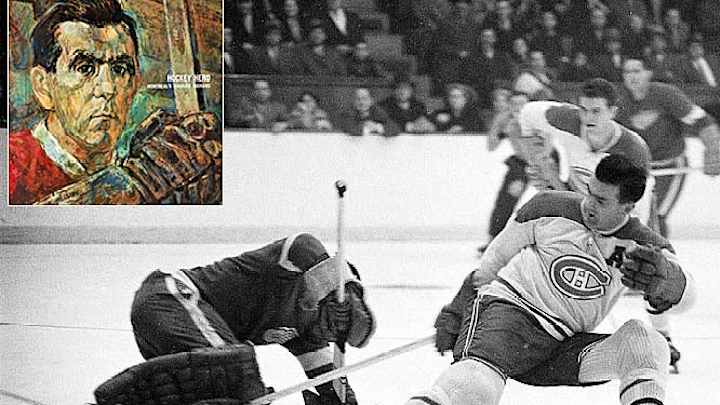
NHL Nicknames
Maurice "Rocket" Richard

The Canadiens' Hall of Famer got his moniker in 1942 after teammate Ray Getliffe remarked during a practice that Richard skated like a rocket. The comment was overheard by Montreal Gazette sportswriter Dink Carroll, who began calling Richard ''The Rocket'' in his stories. The nickname was fitting, as Richard was a devastating goal-scorer who played with an intense glare on his face. Send comments to siwriters@simail.com.
Henri "Pocket Rocket" Richard
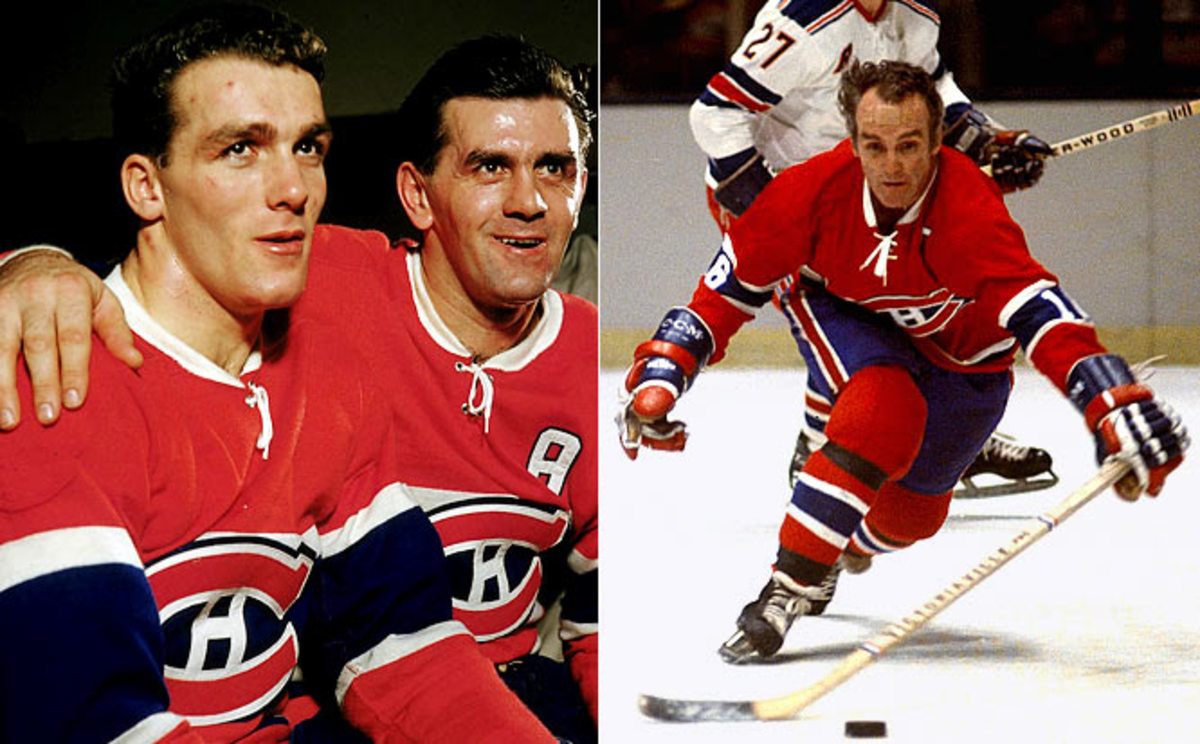
Rocket Richard's younger brother Henri was waterbug-quick but, at 5-7 and 160 pounds, three inches shorter and 20 pounds lighter than his famous sibling, hence his nickname. The Hall of Fame center's name graces the Stanley Cup a record 11 times as a player. He spent his entire 20-season career with the Canadiens.
Pavel "The Russian Rocket" Bure
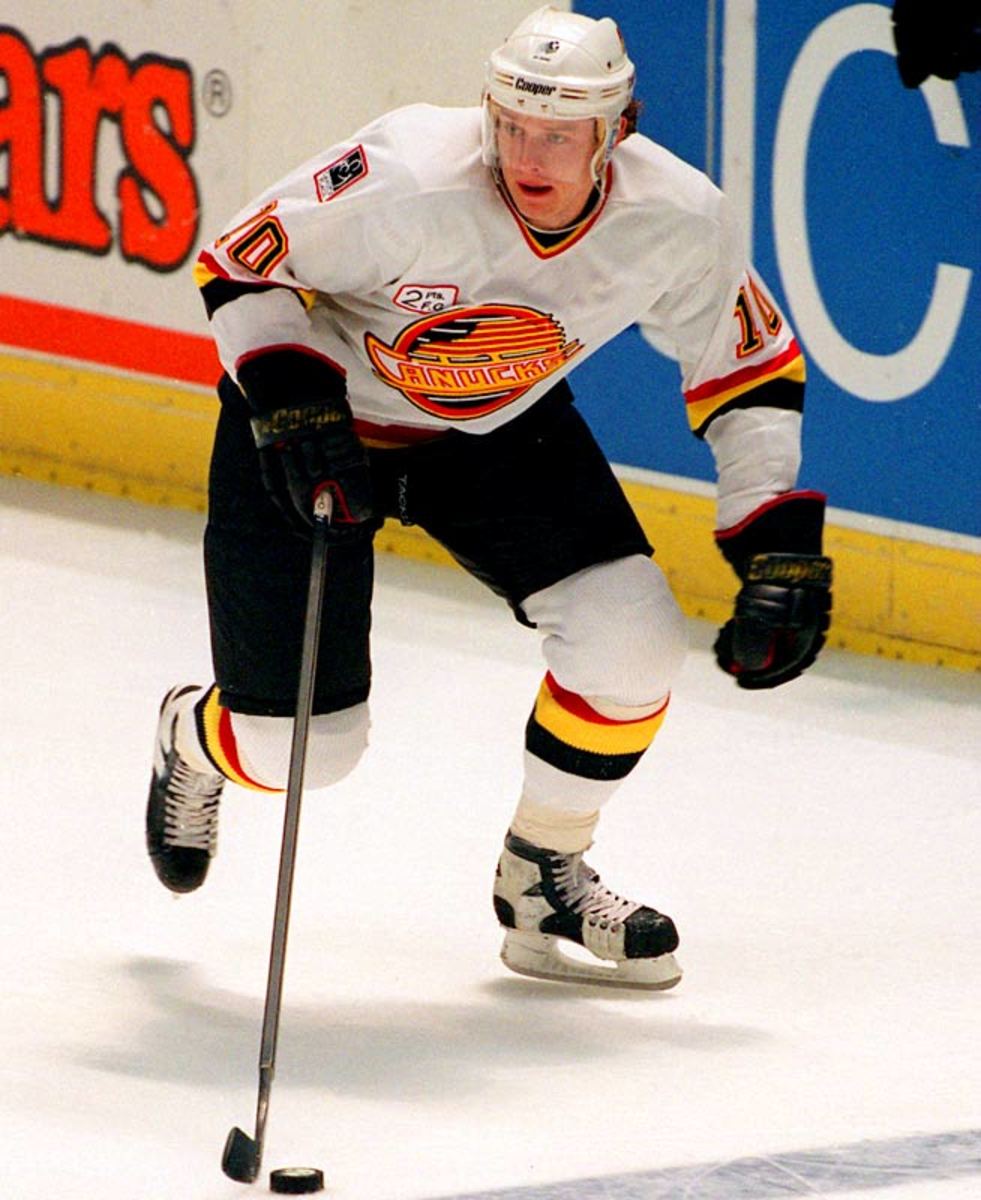
One of the fastest skaters of the 1990s, Bure landed with the Vancouver Canucks in the sixth round of the 1989 NHL Draft, after a stint with the Soviet Red Army Team. The Russian Rocket scored 50 or more goals -- including 60 twice -- five times in his 12 NHL seasons before he was finally brought down by major knee injuries.
Teemu "The Finnish Flash" Selanne
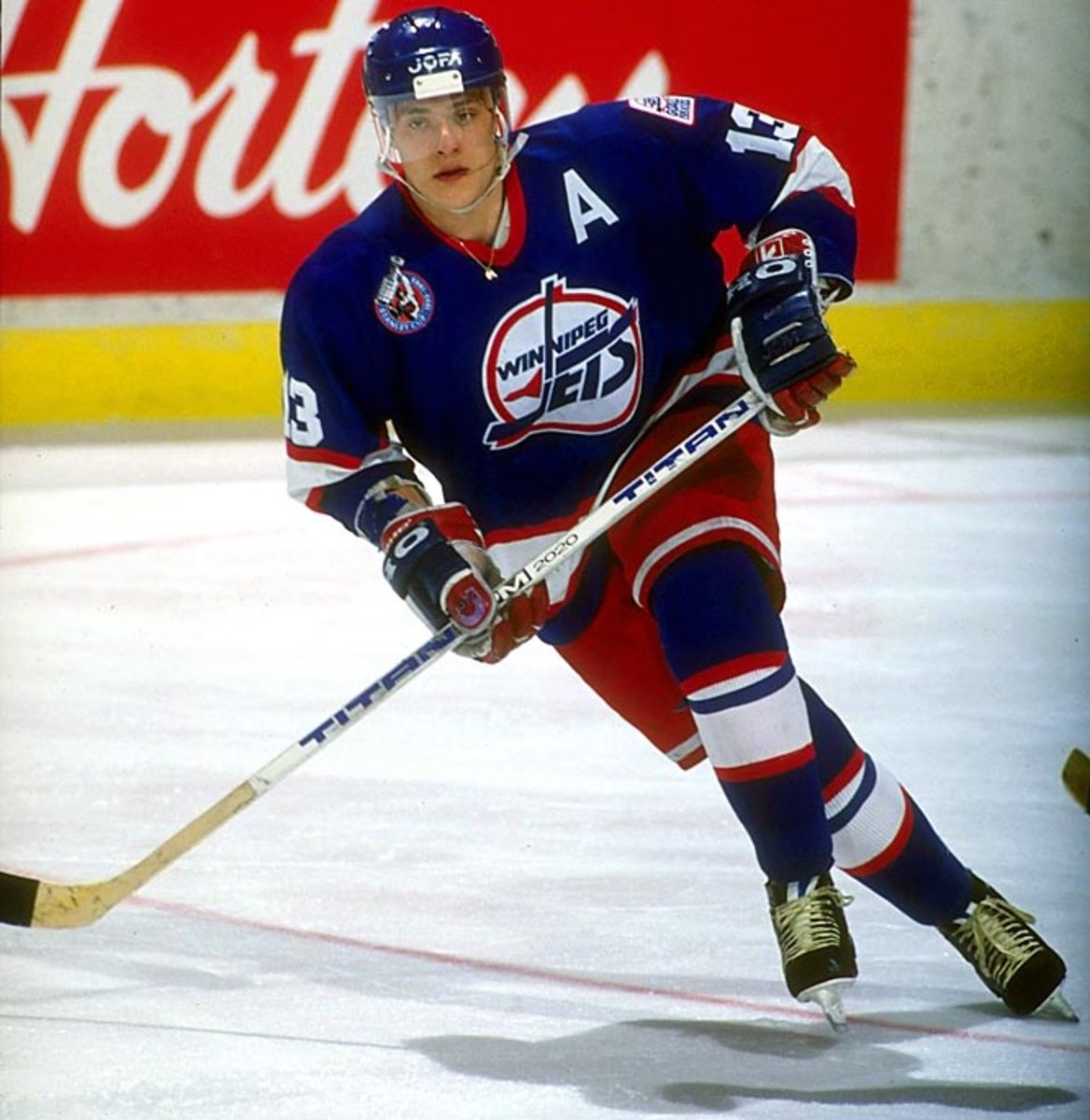
The former kindergarten teacher from Espoo, Finland, credits Winnipeg Free Press sports scribe Ken Campbell for bestowing the nickname after the swift-skating, electrifying Selanne scored a rookie-record 76 goals for the Jets in 1992-93.
Howie "The Stratford Streak" Morenz
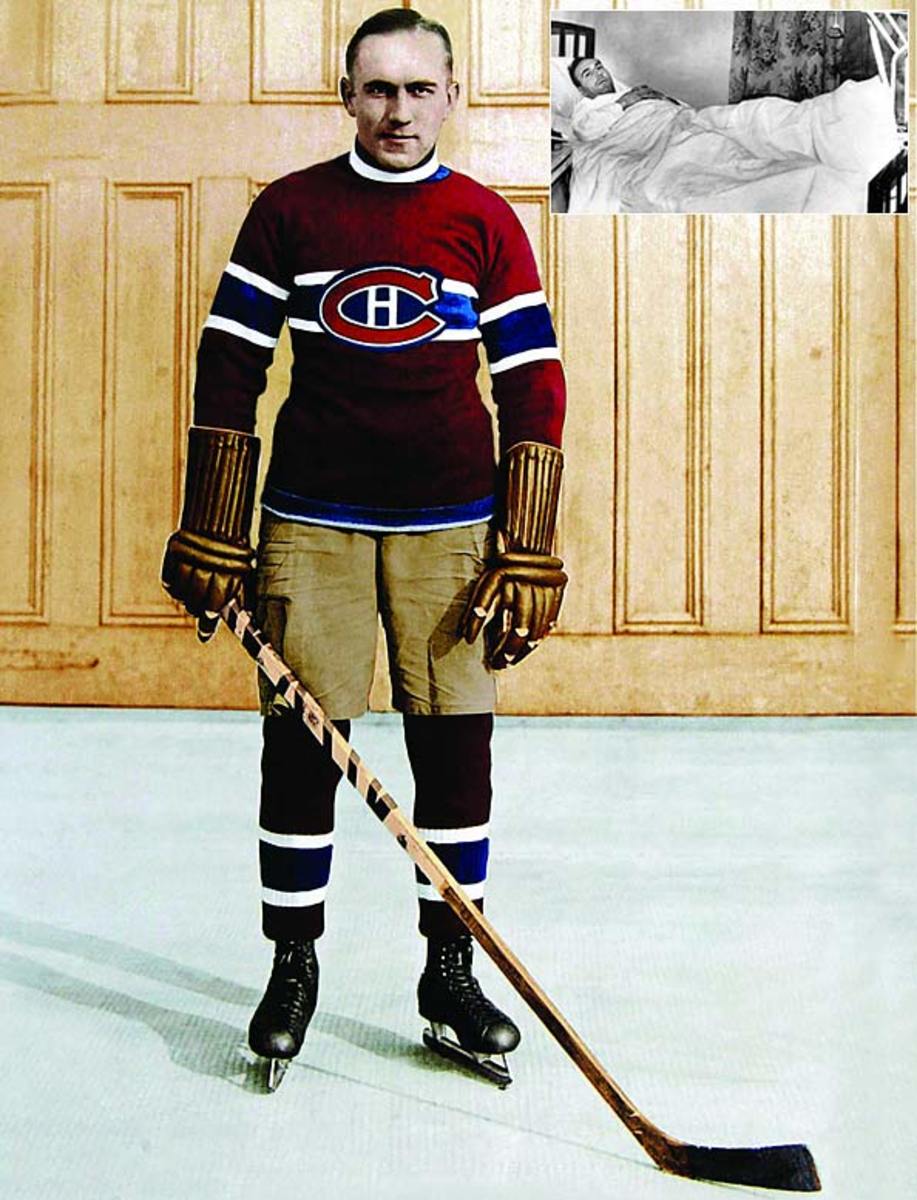
Also known as "The Mitchell Meteor" after his birthplace (Mitchell, Ontario, Canada), the swift, supremely skilled center was playing for the Stratford (Ontario) Midgets when he caught the eye of the Canadiens, who signed him for the 1923-24 season. During his 14-year career, Morenz became the NHL's first superstar, winning two scoring titles, three MVP awards and three Stanley Cups while earning yet another nickname: The Babe Ruth of Hockey.
Bobby "The Golden Jet" Hull
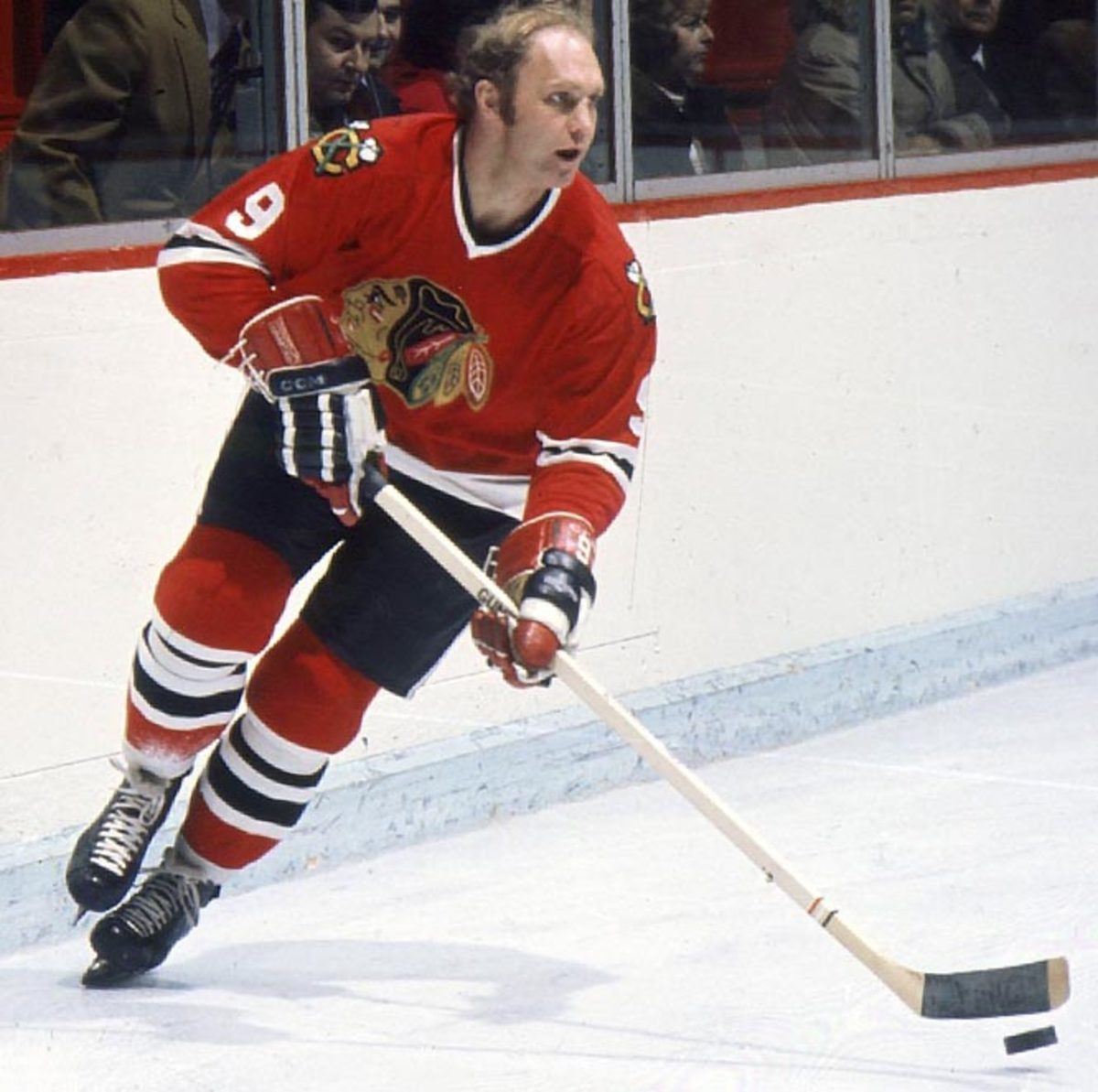
Blessed with blazing speed, power, a booming slap shot, and a head of golden blonde hair, Hull joined the Chicago Blackhawks in 1957 at age 17. He went on to score 50 or more goals for them five times during the next 13 seasons, winning the Stanley Cup in 1961. Fittingly, Hull later played for the Winnipeg Jets of the rival WHA.
Brett "The Golden Brett" Hull
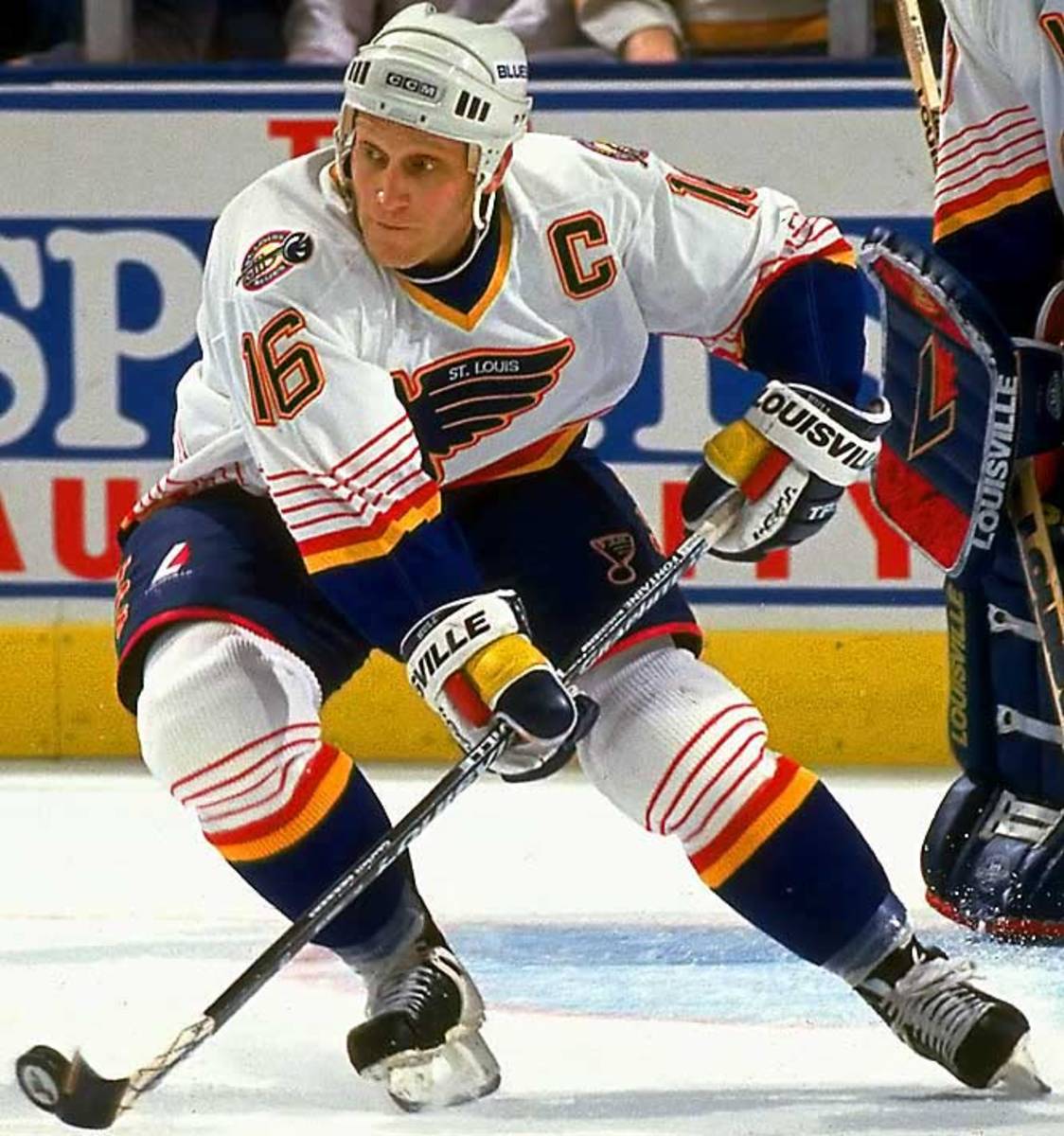
As a teenager, the son of the Golden Jet was known as "Pickle" for his bulbous frame. Once the slimmed-down Brett became a feared NHL goal-scorer in his own right, the comparisons to his Hall of Fame father resulted in the easily-arrived-at "Golden Brett."
Georges "The Chicoutimi Cucumber" Vezina
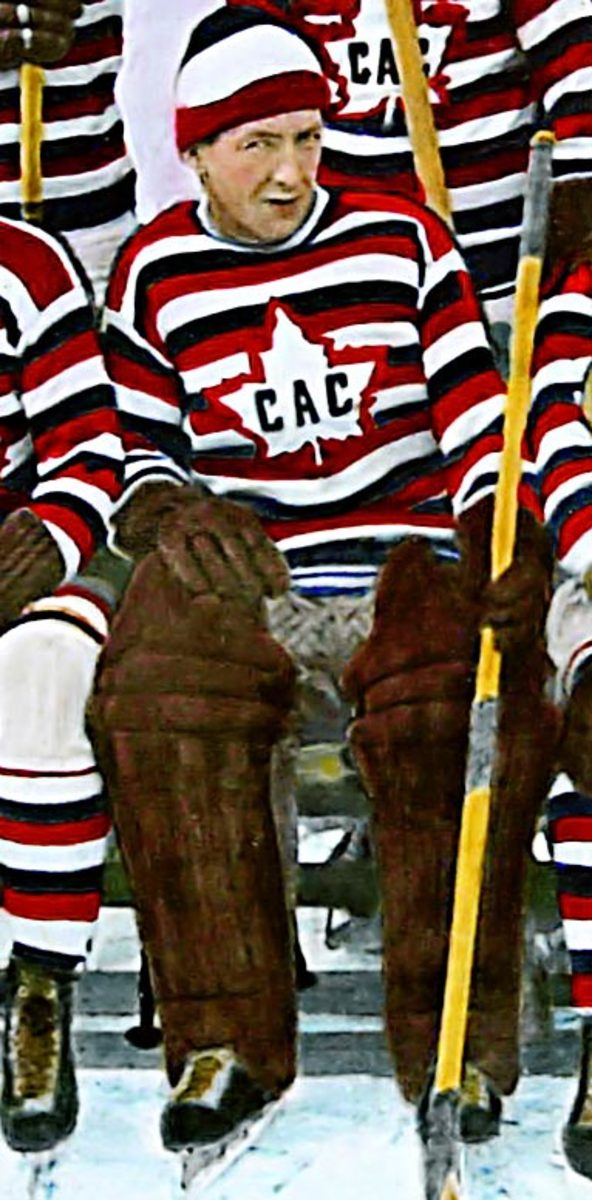
The Montreal icon, after whom the trophy awarded each year to the NHL's best goalie is named, was extraordinarily composed and reserved on the ice. Hailing from Chicoutimi, Quebec, Vezina's nickname was a play on the old expression "cool as a cucumber." He was in net for the Canadiens' first two Stanley Cups: 1916 and 1924.
Guy "The Flower" LaFleur
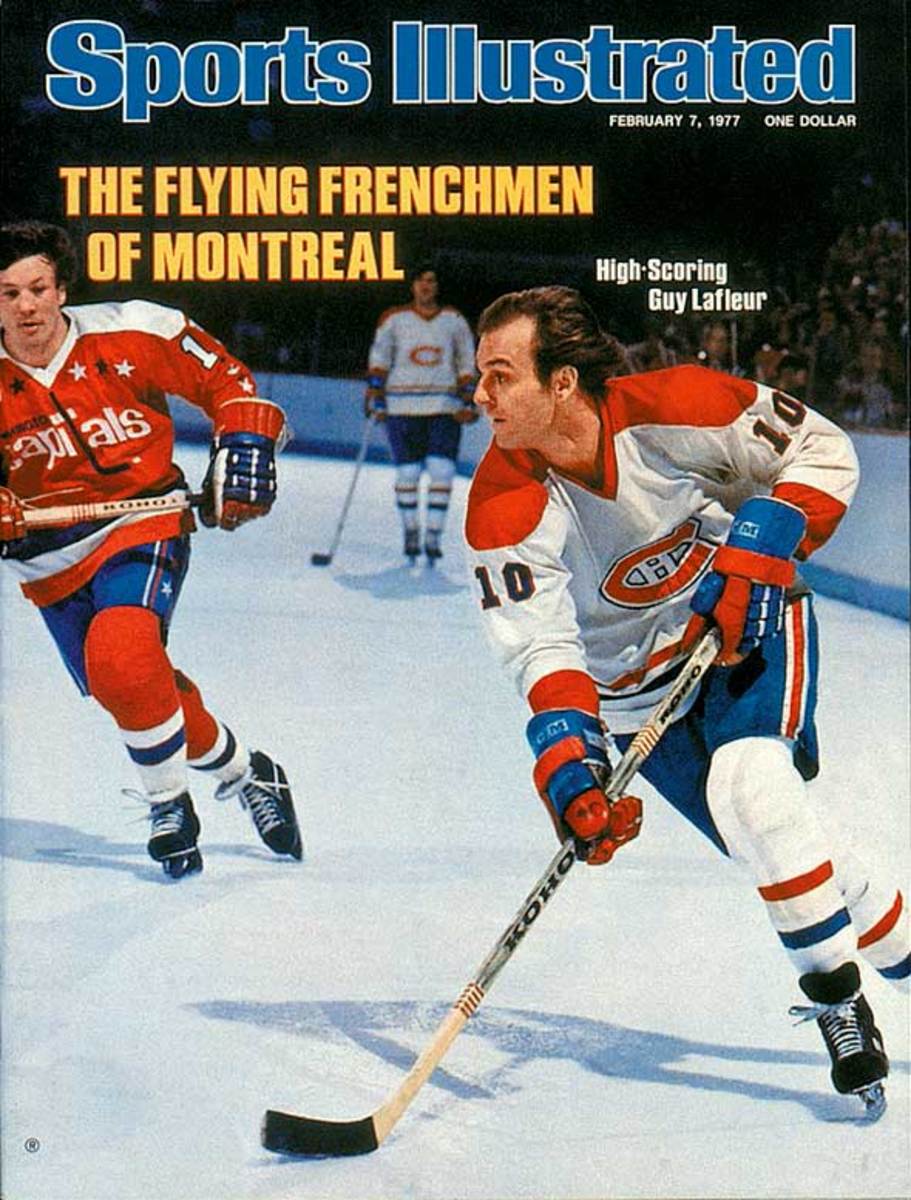
The legendary Canadiens' winger was famous for his graceful style -- his hair flowing behind him as he skated -- and his nickname was a natural, as the French word "fleur" means flower. LaFleur scored between 50 and 60 goals each season from 1974 to 1980, winning three scoring titles, two Hart (MVP) trophies and five Stanley Cups.
Wayne "The Great One" Gretzky
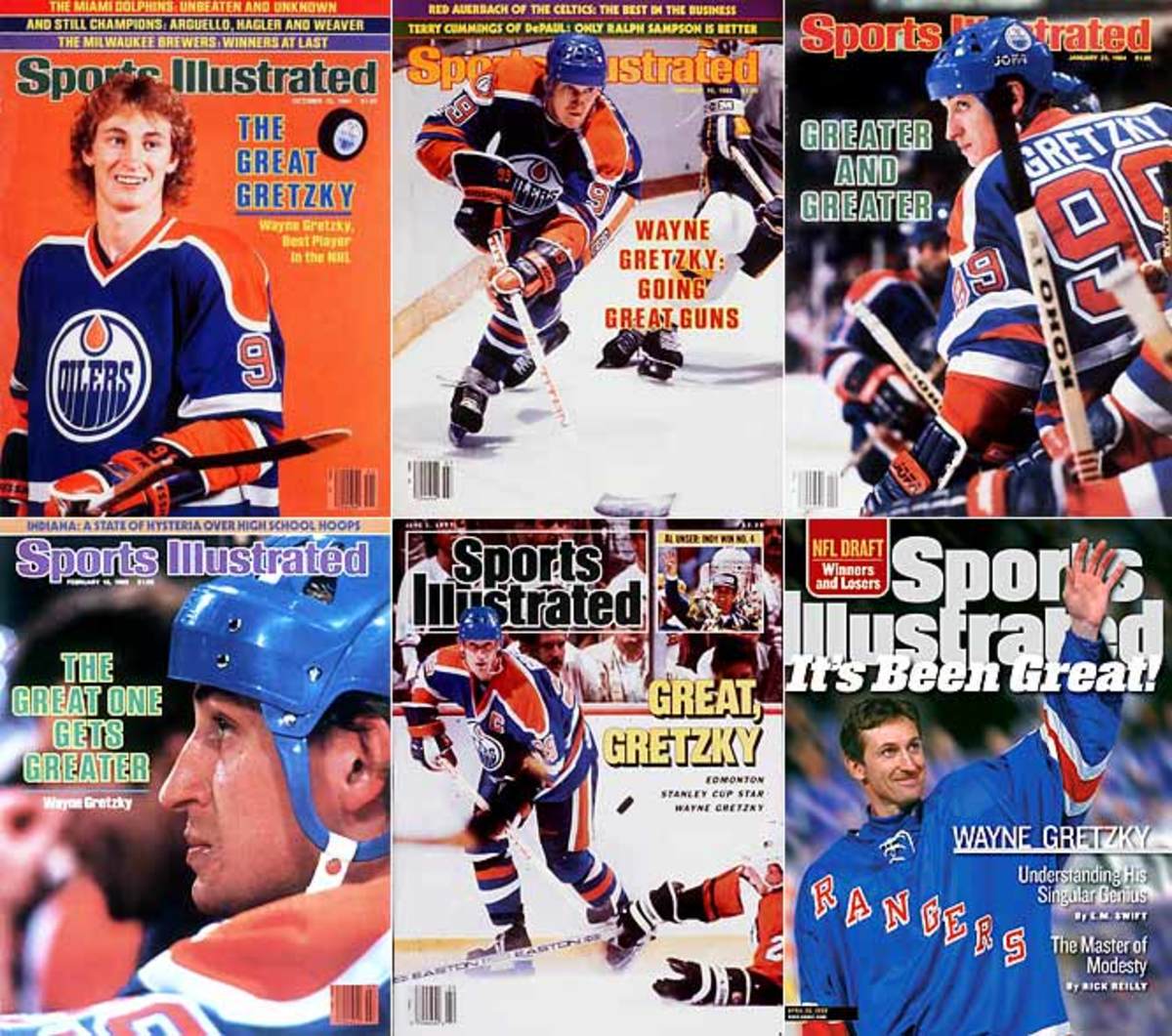
When you start shattering NHL scoring marks at age 20 and go on to rewrite the record book -- Gretzky owned or shared 61 marks upon his retirement in 1999 -- while winning nine Hart trophies, 10 scoring titles and four Stanley Cups, "The Great One" is a rather obvious tag. As a kid in Brantford, Ont., Gretzky was called "the White Tornado" for the color of his hockey gloves, his speed, and his devastating scoring skills.
Dominik "The Dominator" Hasek
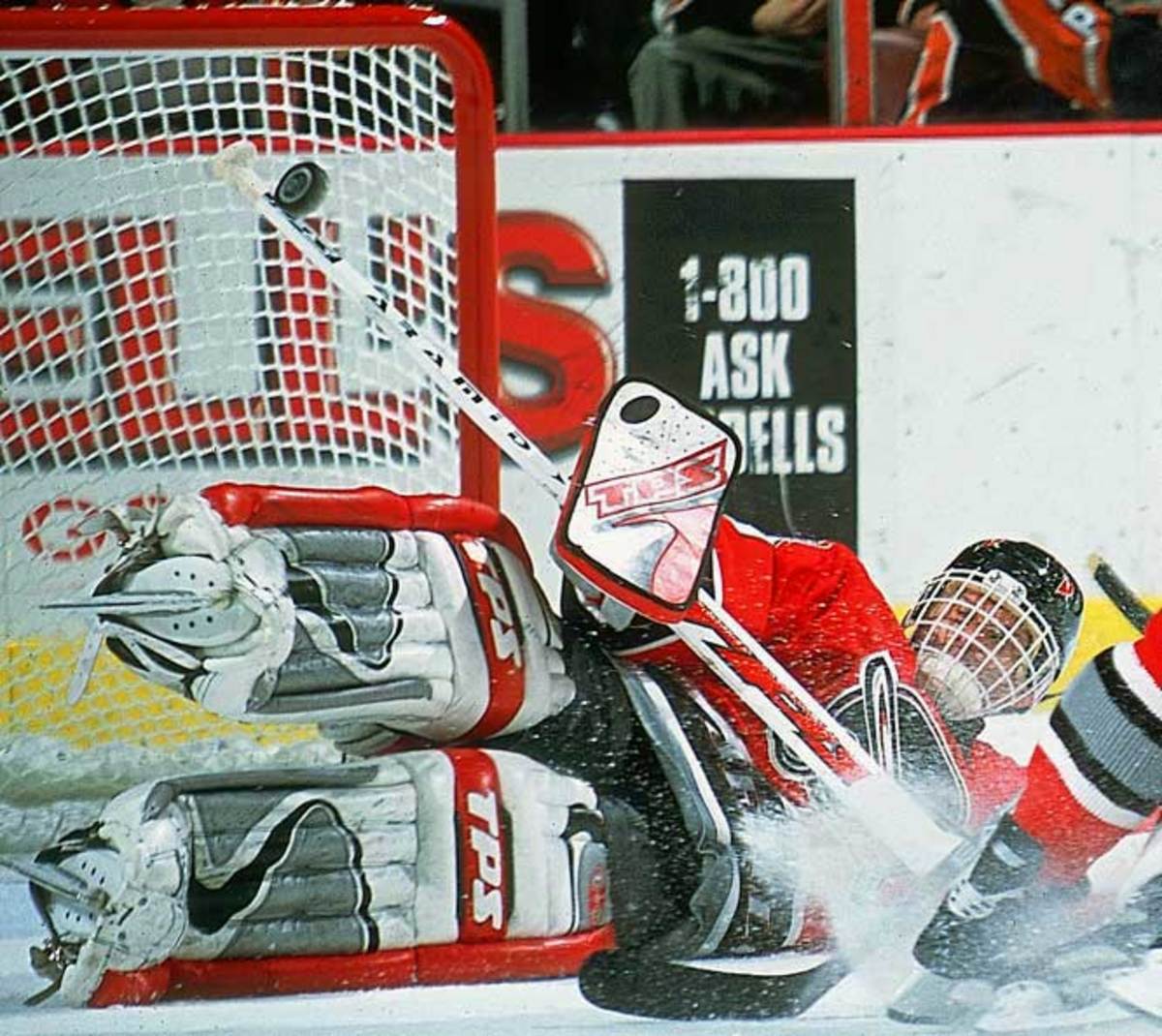
A rubber-limbed acrobat with an unorthodox flopping, flailing style, Hasek dominated the NHL for most of his 15 seasons, winning six Vezina trophies between 1994 and 2001. The first of his two successive Harts, in 1997, made him the first goalie in 35 years to be named the NHL's MVP.
Nikolai "The Bulin Wall" Khabibulin
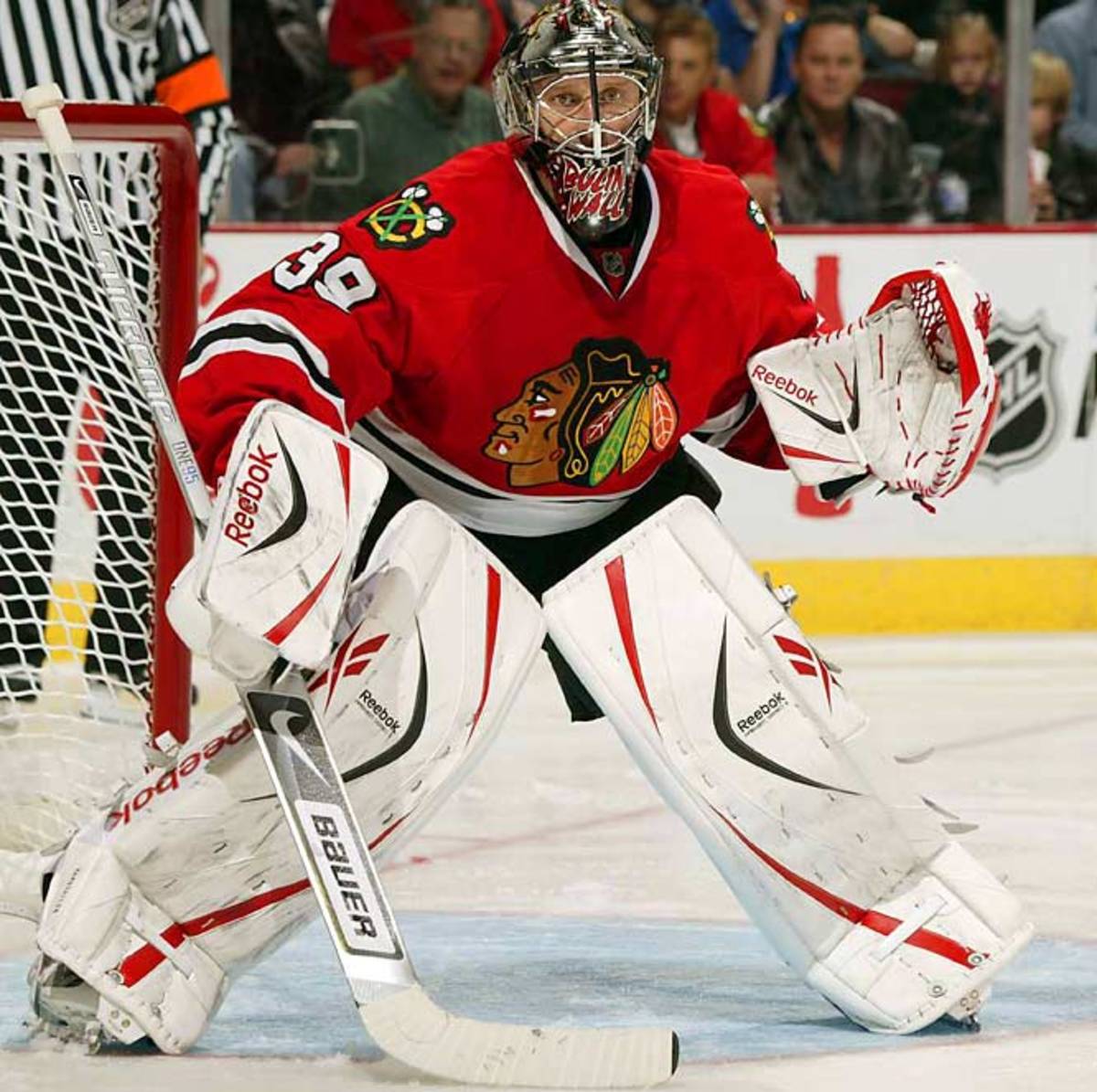
"Someone tabbed me the Bulin Wall [after the Berlin Wall] and it stuck," the Russian goaltender and veteran of the Red Army team told ESPN in 2002. True to the impenetrable nature of his nickname, Khabibulin backstopped the Tampa Bay Lightning to the Stanley Cup in 2004. Fittingly, the artwork on his mask is based on the classic Pink Floyd album "The Wall."
Johan "Mule" Franzen
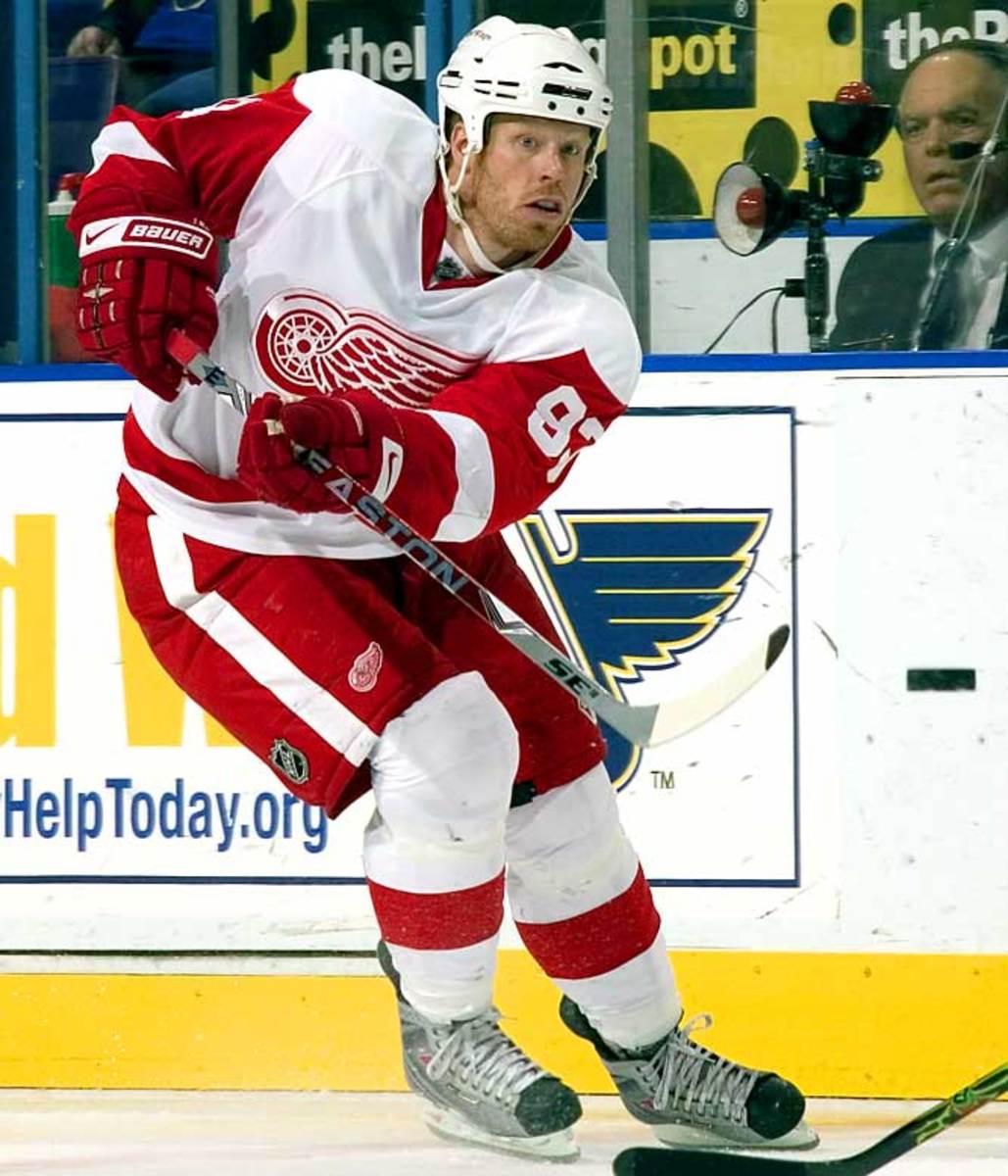
The 6-3, 220-pound Swedish center was a rookie with the Red Wings in 2005 when his appearance and rugged playing style reminded teammate Steve Yzerman of a particular beast of burden.
Ken "The Rat" Linseman
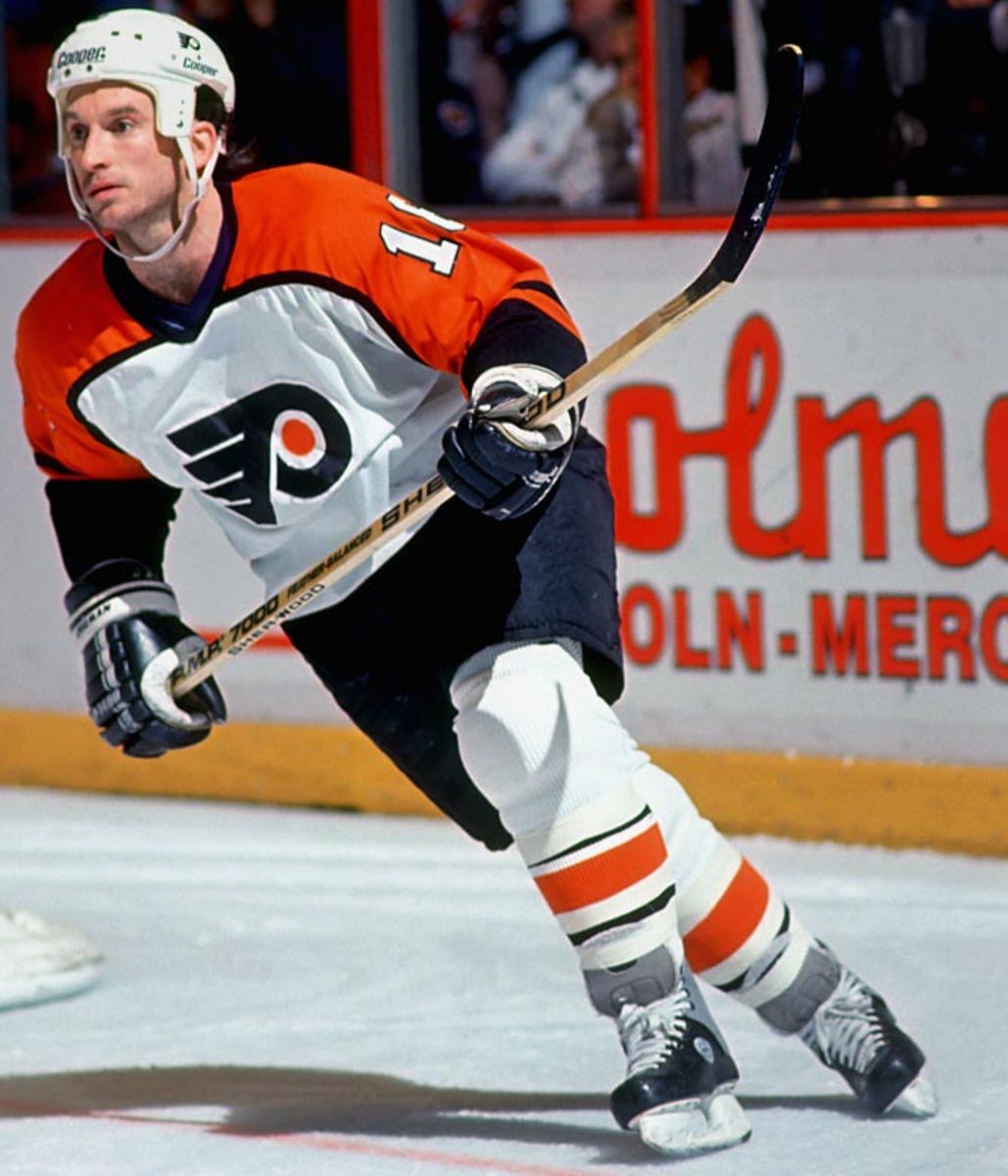
Hall of Famer Bobby Clarke of the Flyers thought Linseman's hunched, scuttling skating style reminded him of a rat. Linseman, who played 13 seasons in the NHL, was indeed a determined pest known for biting foes during fights. With Brian Propp and Paul Holmgren, Linseman led the Flyers' "Rat Patrol" line of the early 1980s.
Felix "The Cat" Potvin
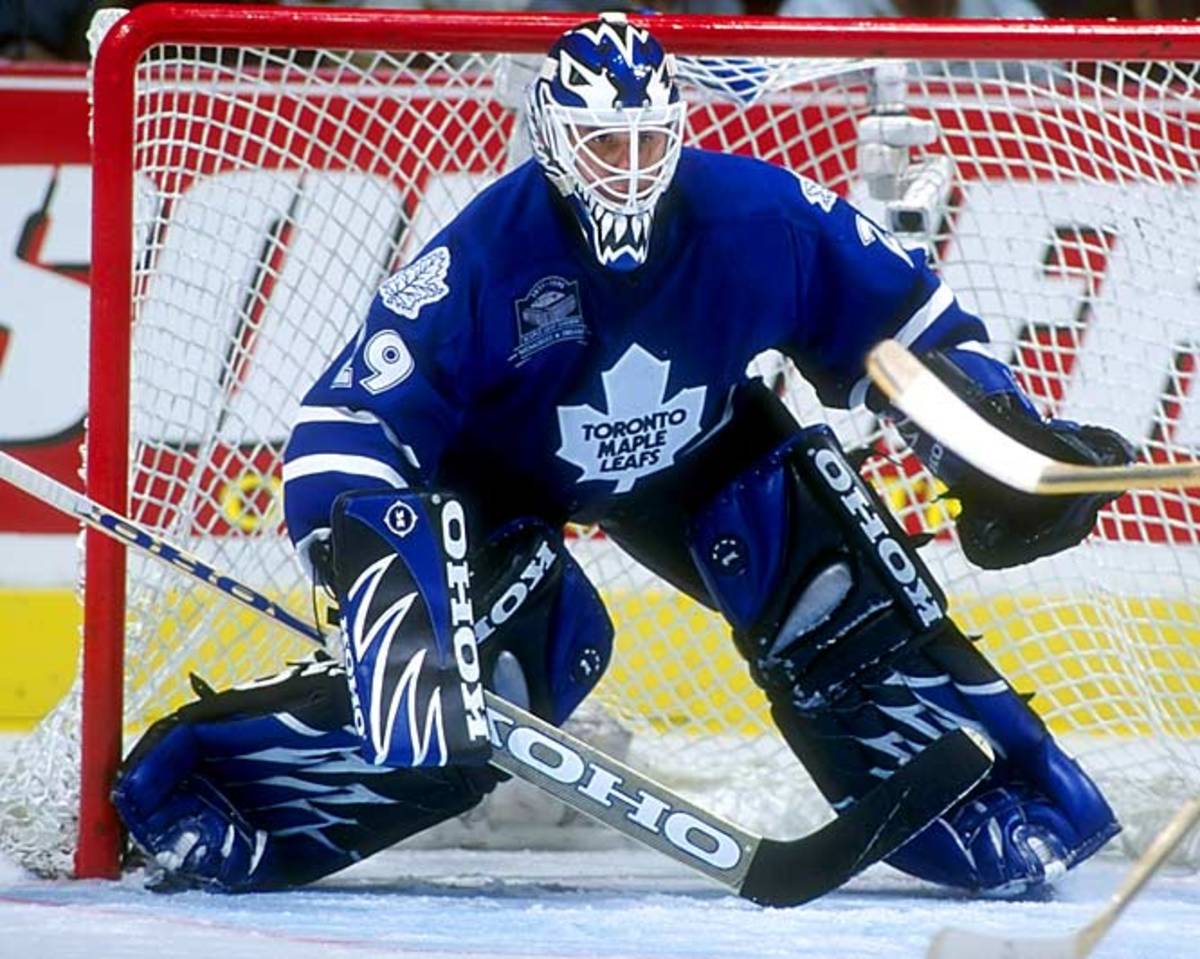
"The Cat" was an apt nickname for a goaltender who relied on his reflexes, and Potvin's first name naturally brought to mind the famous cartoon cat. In 1996-97 with the Maple Leafs, the Cat's reflexes were especially sharp as he set an NHL single-season record of 2,214 saves that stood until 2004.
Ed "The Eagle" Belfour
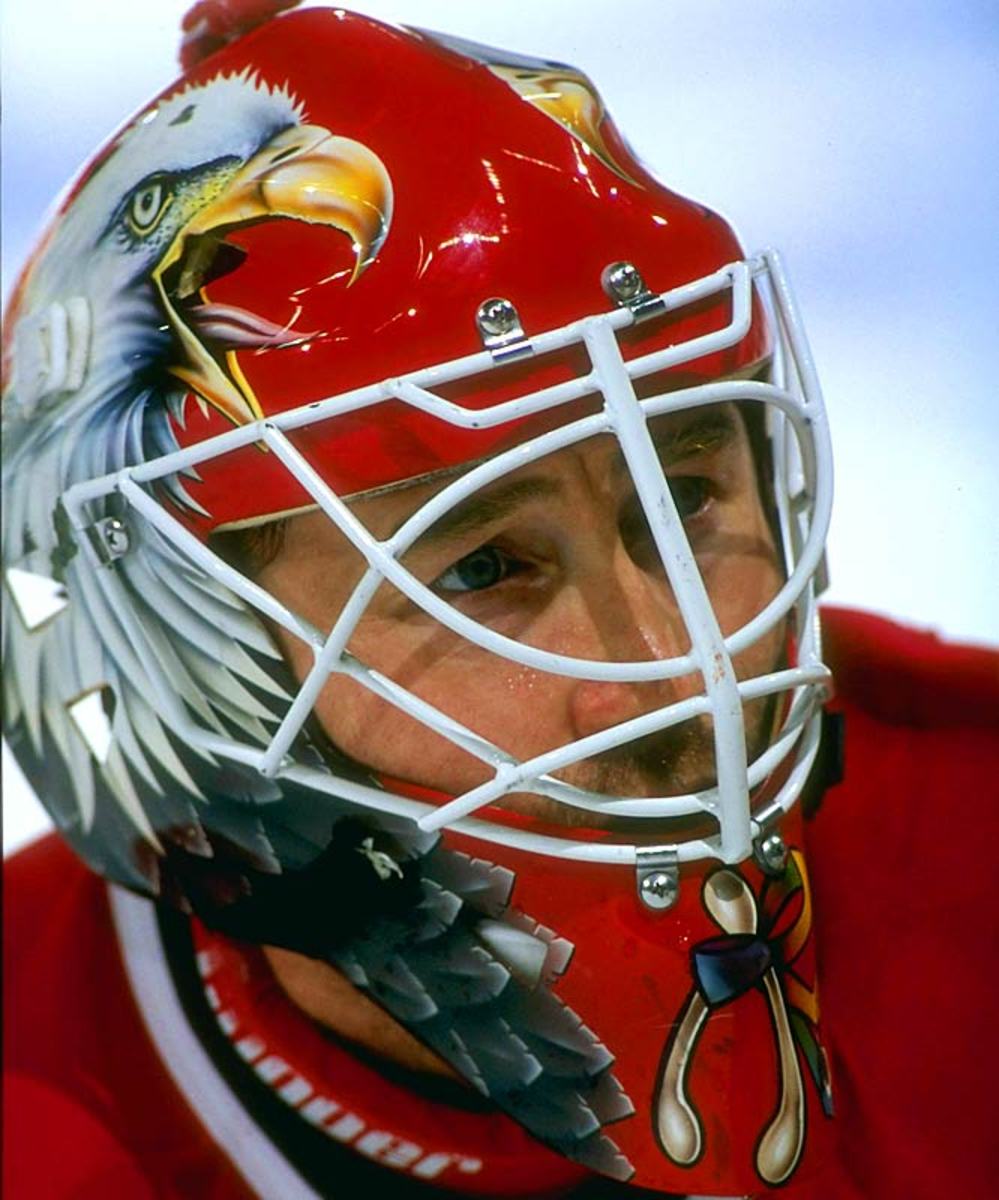
A fiery competitor, Belfour was known by two nicknames during his years with the Blackhawks (1988-97): "The Eagle" -- after the bird on his mask (Belfour admired eagles for their majesty and aggression) -- and "Crazy Eddie" for his volatile unpredictability. The Eagle led the Hawks to the Stanley Cup Final in 1992, and later won the chalice in 1999 with the Dallas Stars.
Stu "The Grim Reaper" Grimson
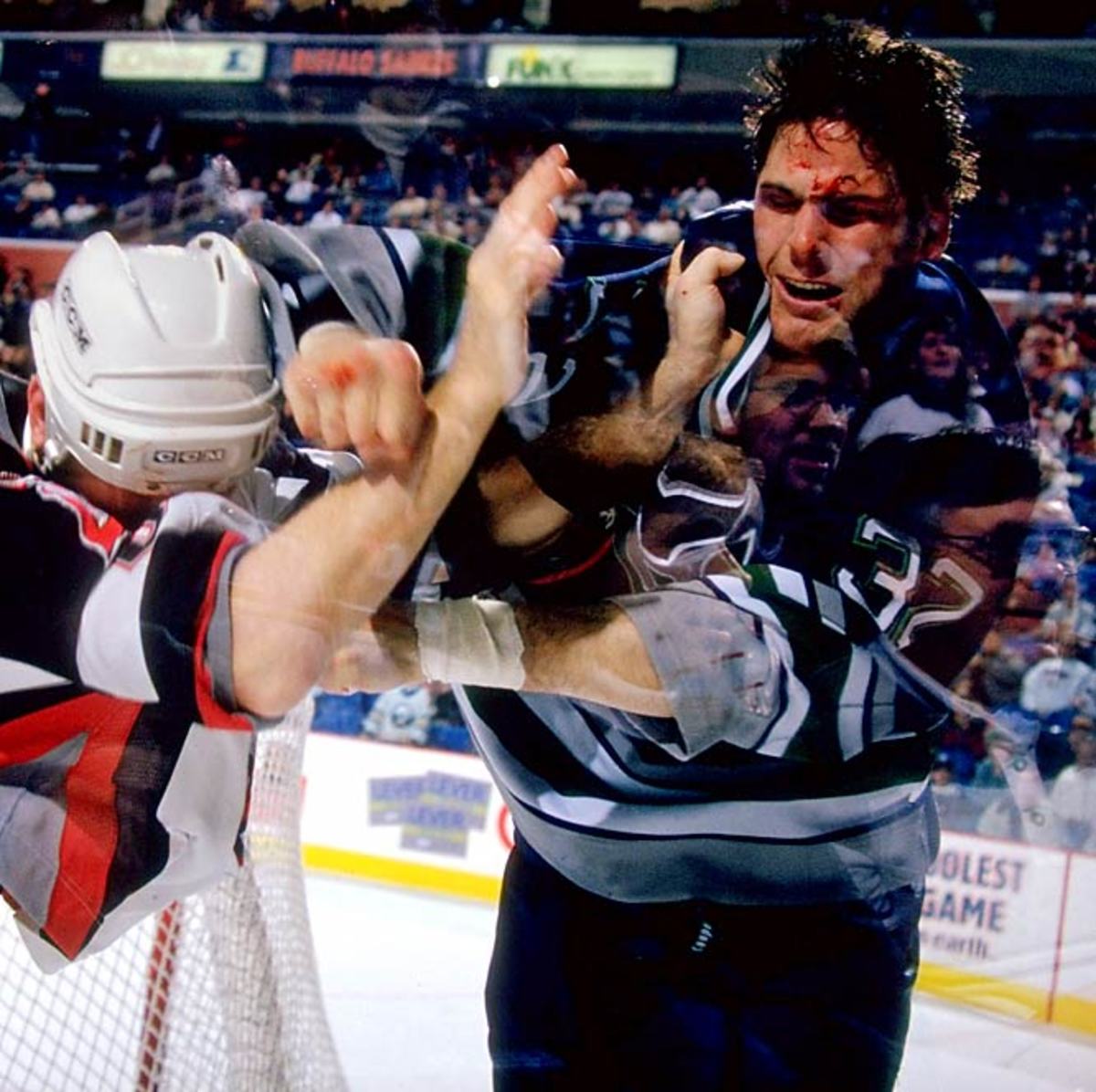
The Grim Reaper was a natural nickname for one of the NHL's most feared enforcers of the 1990s. Like the dark-hooded agent of death, the 6-foot-5 Grimson was not above using his stick on hapless souls.
Derek "The Boogie Man" Boogaard
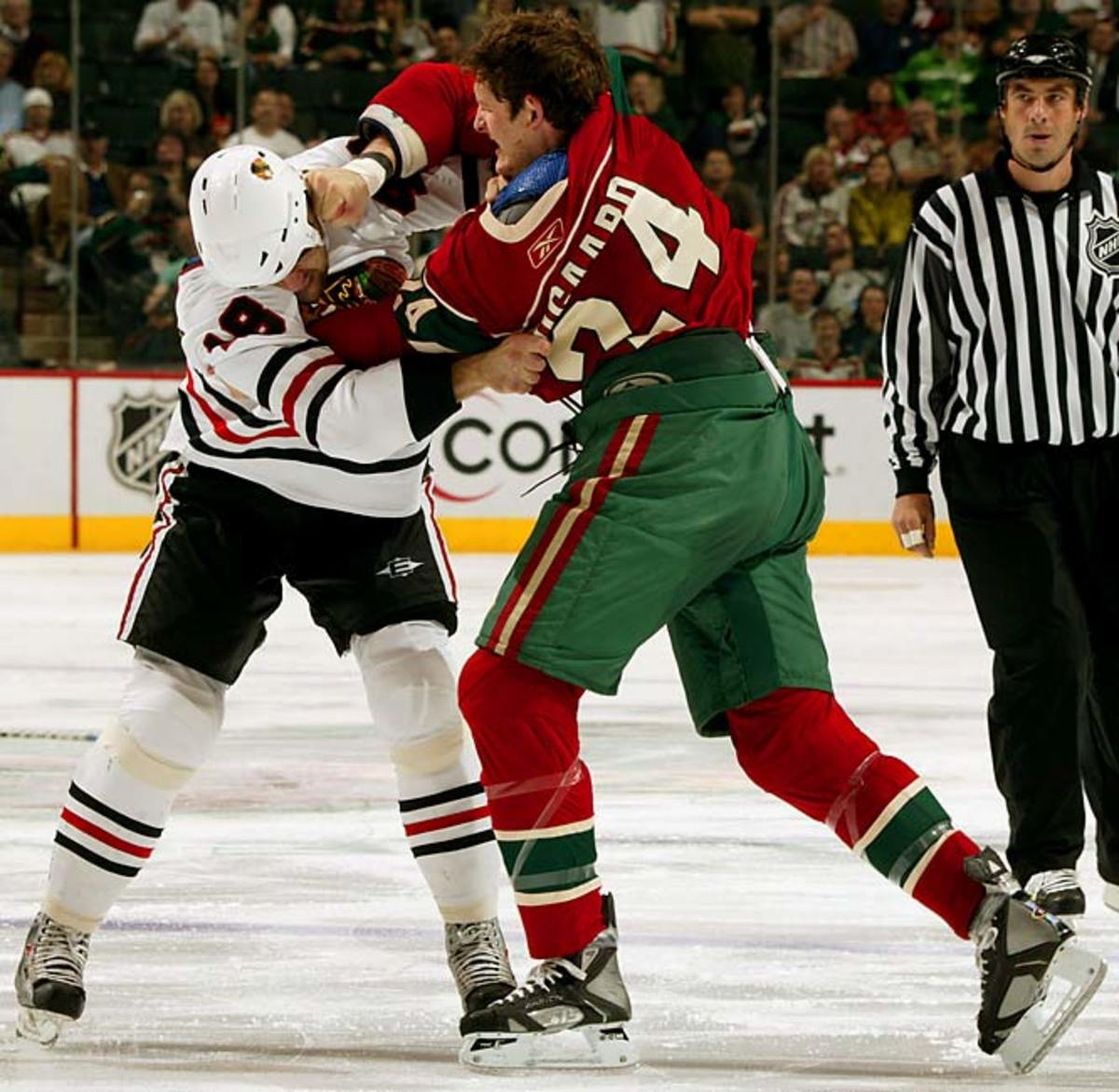
The Minnesota Wild's enforcer is affectionately known as "Boogie" to his teammates and "The Boogie Man" to those who dread running into him on the ice. A physical confrontation with the hulking, 6-7, 260-pound Boogaard is never pleasant, and he relishes wreaking mayhem and terror wherever he goes.
Chris "Knuckles" Nilan
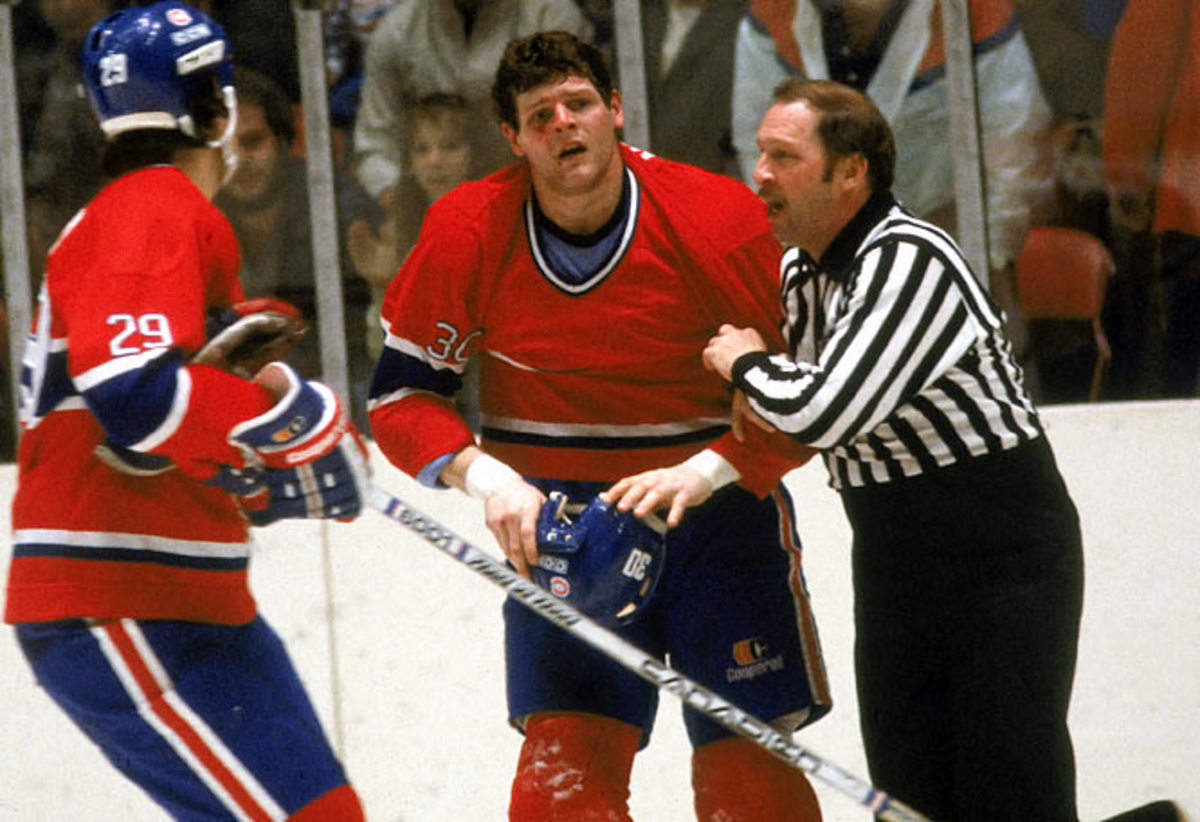
One of the NHL's best fighters and top enforcers of the 1980s, Nilan earned his nickname while plying his trade for Canadiens, Rangers, and Bruins, racking up 3,043 minutes in the sin bin.
Doug "Killer" Gilmour
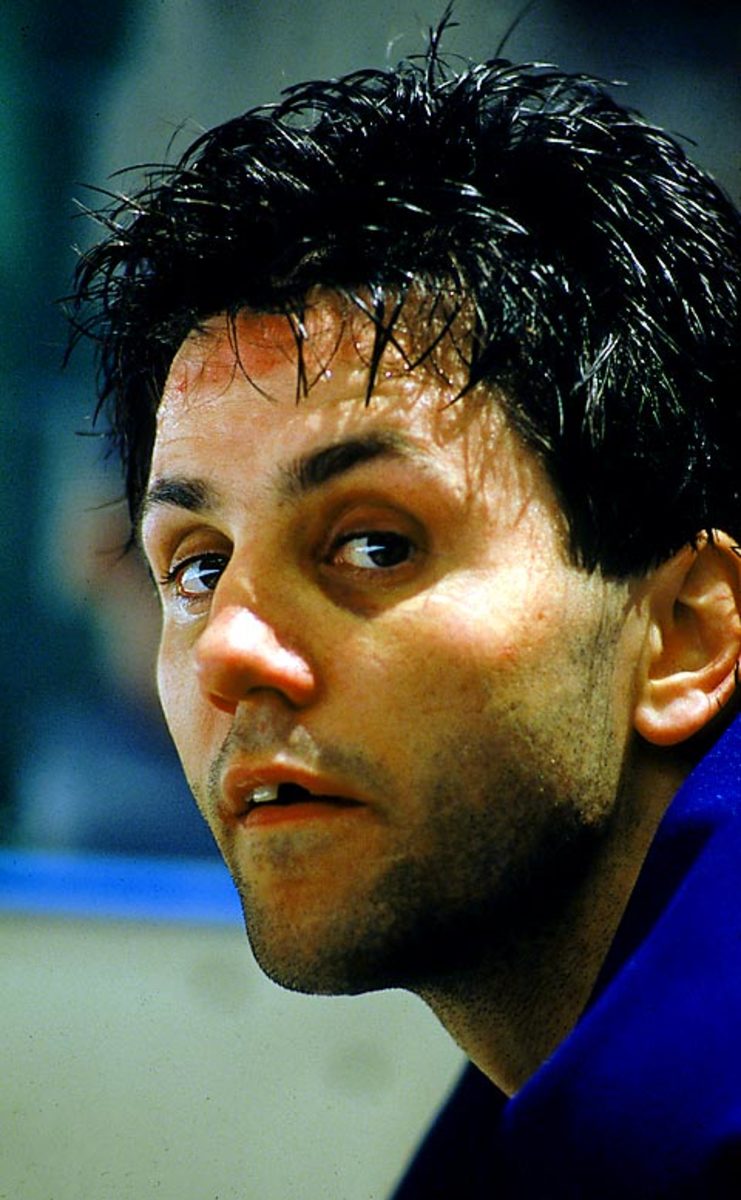
A seventh-round pick by St. Louis in 1982, the 5-11, 177-pound center was nicknamed "Killer" by teammate Brian Sutter for his relentless intensity. Gilmour went on to score 450 goals and 1,414 points during 23 seasons with the Blues, Maple Leafs, Flames, Devils, Sabres and Canadiens, winning the Stanley Cup with Calgary in 1989.
Don "Grapes" Cherry
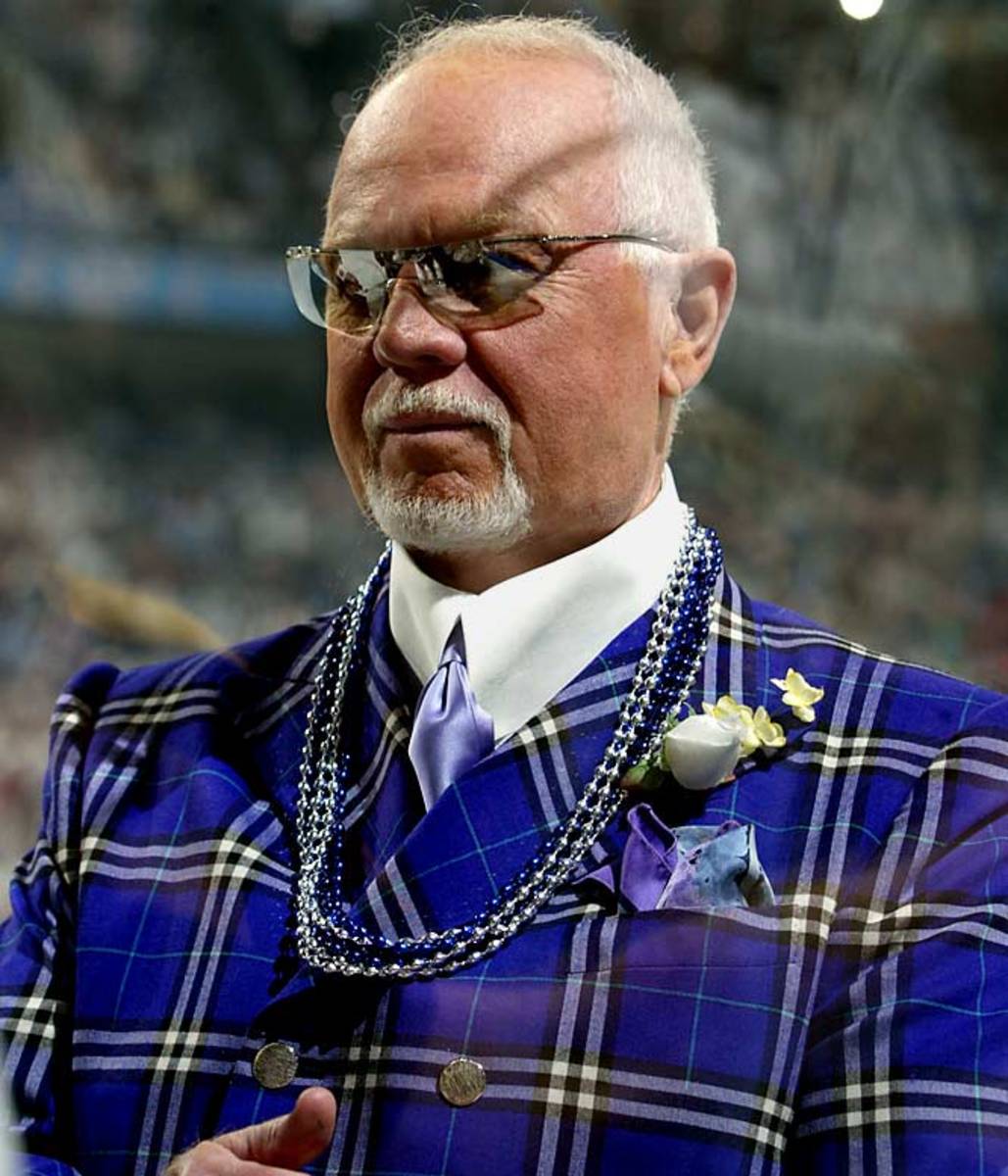
The former NHL coach and current broadcasting icon known for his eye-busting suits and blunt, acerbic opinions has had his nickname since his days (1951-72) as a minor league defenseman. It's a play on "Sour Grapes" -- understandable, as Cherry only made it to the NHL for one game, in 1955, but he later surfaced as coach of the Boston Bruins (1974-79).
Al "Radar" Arbour
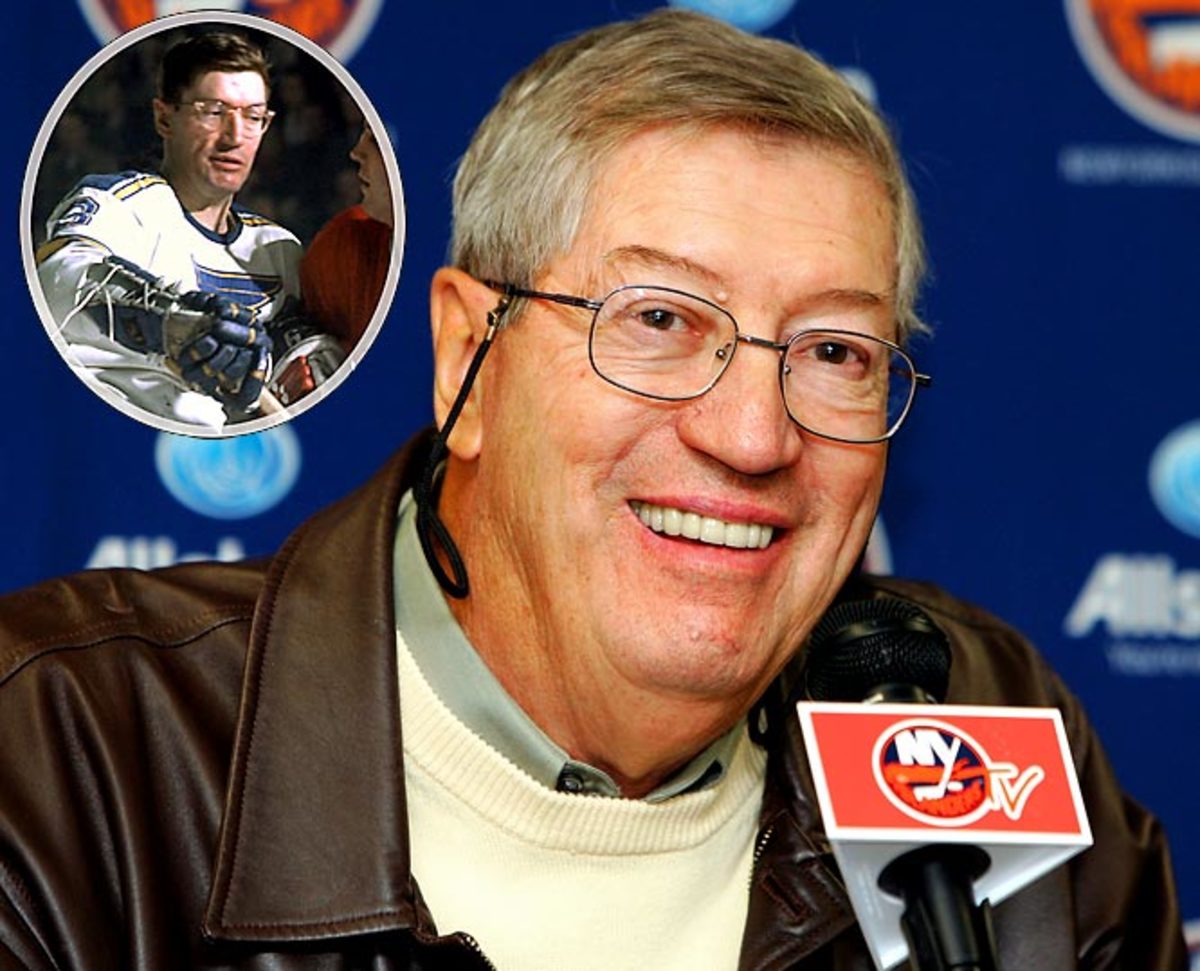
As a defensive NHL defenseman from 1953-71, Arbour stood out for wearing glasses on the ice. The specs earned him his nickname after his coach on the Red Wings, Jack Adams, called him a "blind-eyed, CinemaScope, radar, sonuvab----h" during a locker room tirade. Arbour is best known for coaching the Islanders to four straight Stanley Cups (1980-83).
Lorne "Gump" Worsley
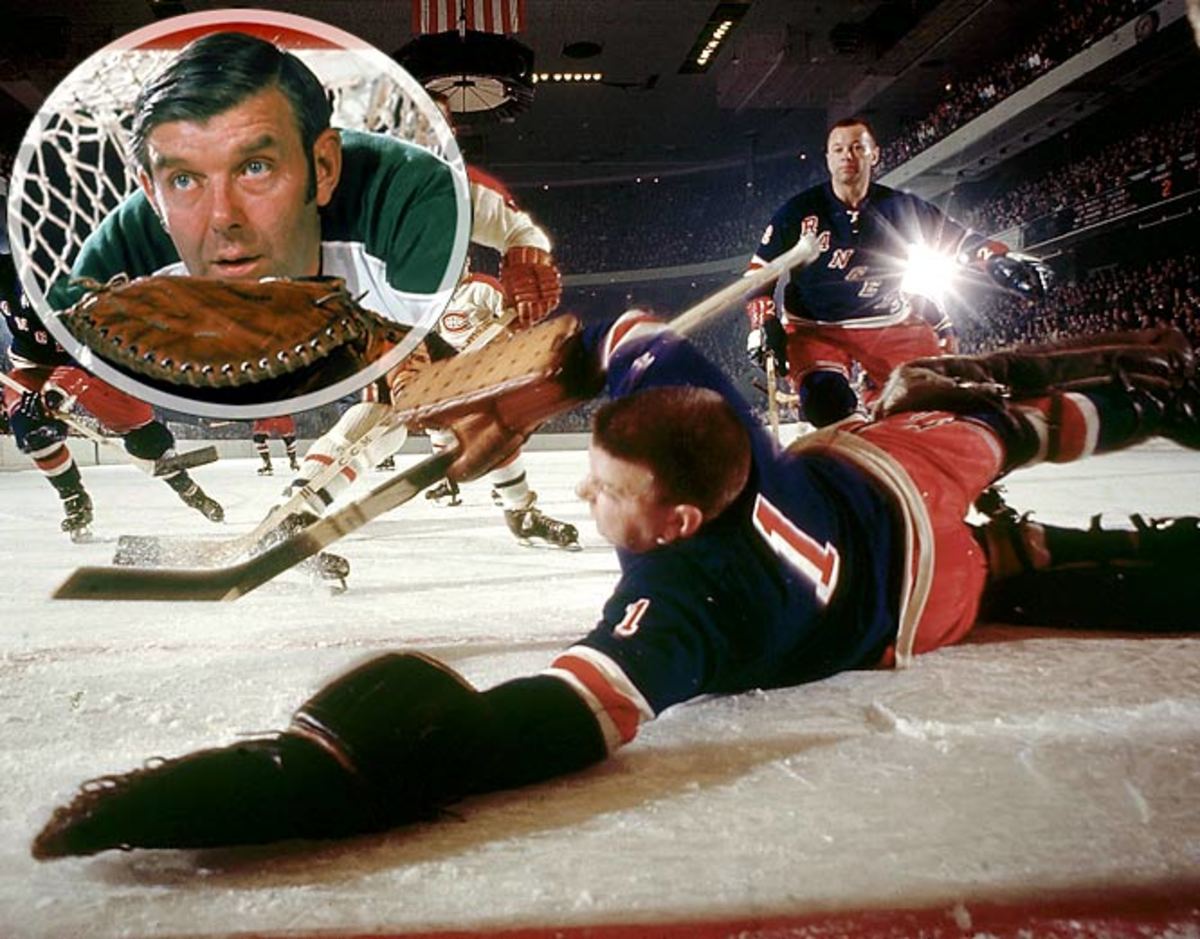
The Hall of Fame goalie who won 335 games for the Rangers, Canadiens and North Stars from 1952 to 1974 was a kid when a friend started calling him Gump because Worsley's hair stood straight up like a comic strip character named Andy Gump. The moniker stuck after Worsley listed it on a form while signing on with a junior team.
Super Mario Lemieux
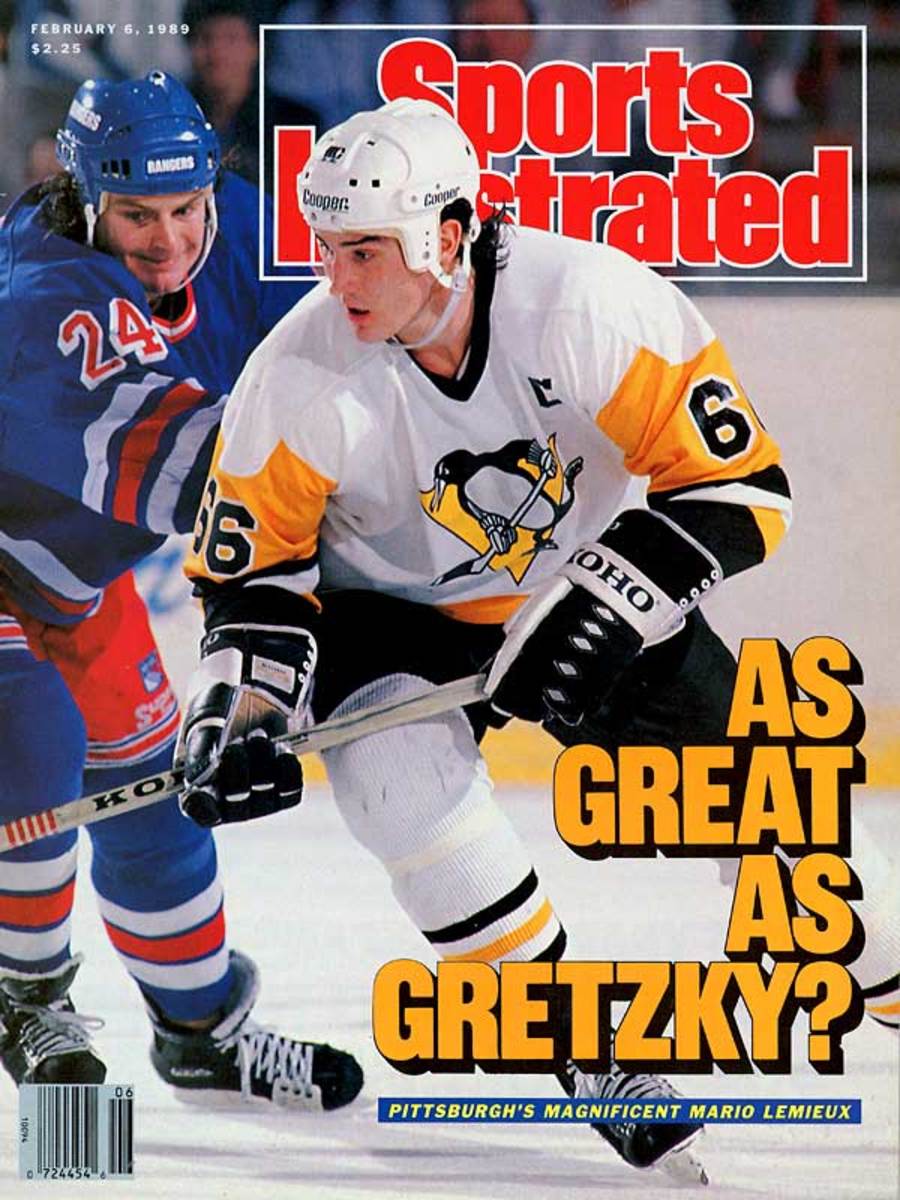
Making his NHL debut when the popular Super Mario video game was introduced, the top pick in the 1984 NHL Draft earned his nickname while becoming only the third rookie to score 100 points. Lemieux -- which means "the best" in French -- later snapped Wayne Gretzky's seven-year hold on the scoring title and eight-year grip on the Hart Trophy. His 17-season, Hall of Fame career would have been even more super had it not been interrupted by cancer and back injuries.
Frank "Mr. Zero" Brimsek
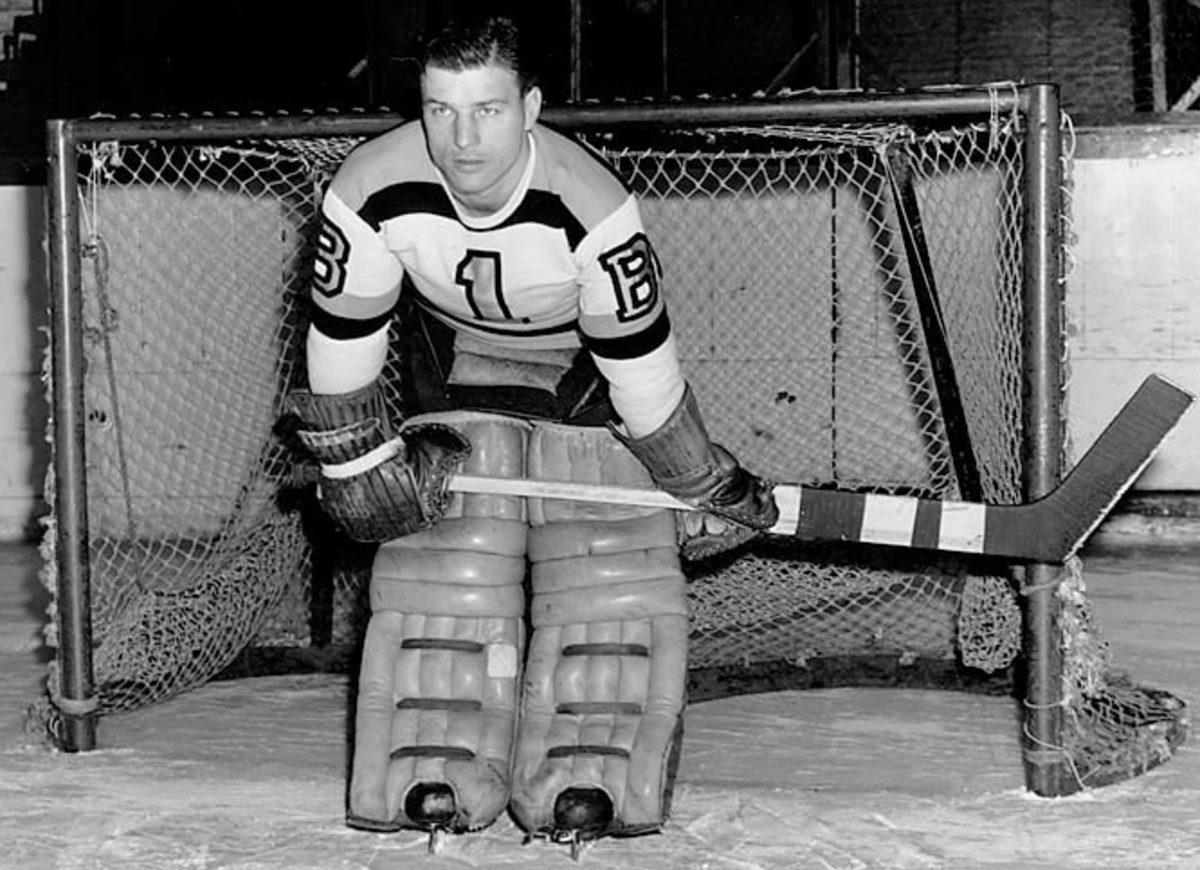
Brimsek earned his nickname as a Boston Bruins rookie in 1938-39 by posting scoreless streaks of 231 minutes 54 seconds and 220 minutes 24 seconds en route to 10 shutouts and the Stanley Cup. Brimsek twice led the league in shutouts and won two Vezina trophies during his 10-year career.
Gordie "Mr. Hockey" Howe
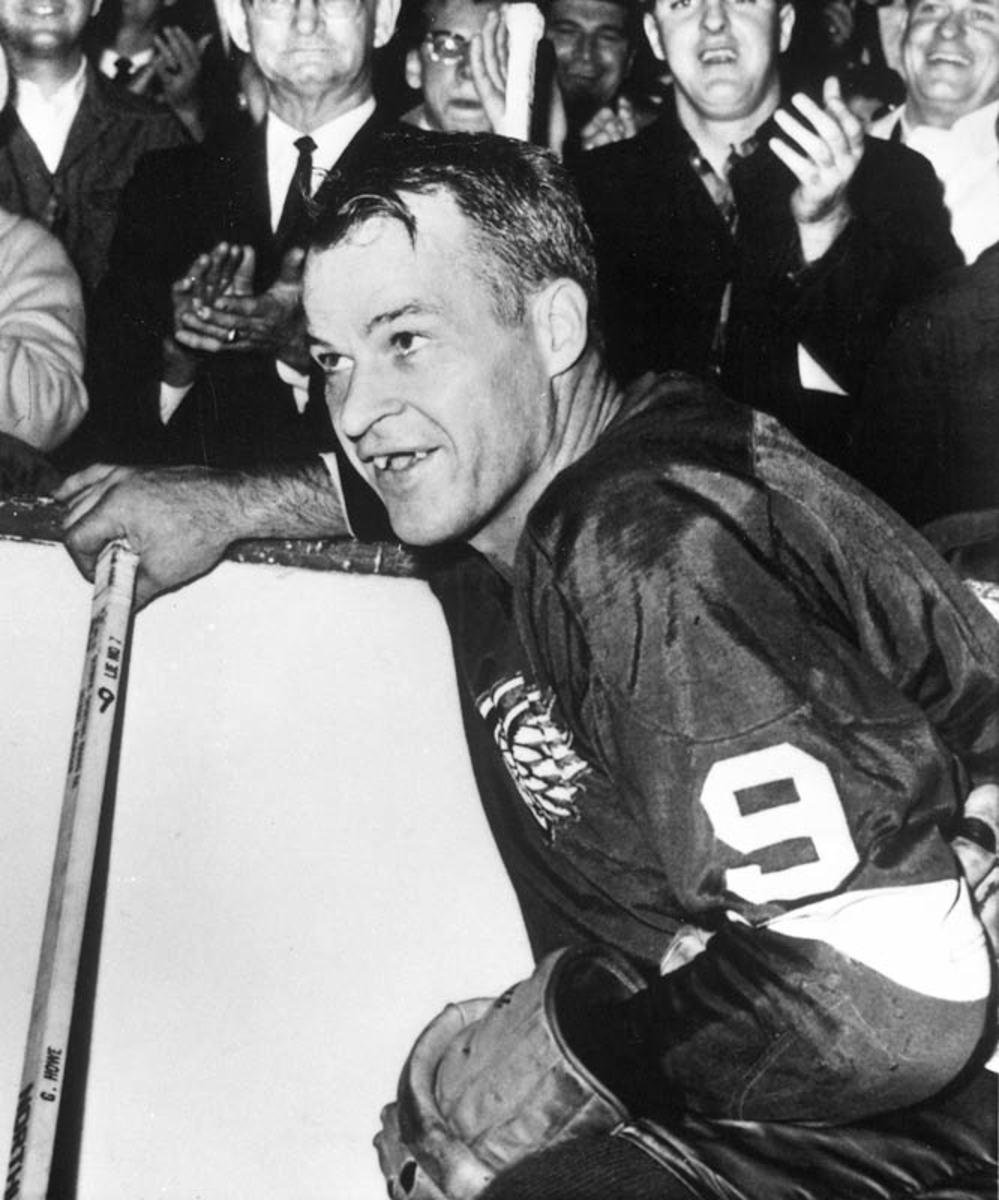
When you play for three decades, until the age of 51, and become the NHL's all-time scorer (since topped by Wayne Gretzky) as well as a revered icon, it's not surprising that you come to personify your sport. And Howe was hockey: tough, fearless and skilled. The combination of a goal, an assist and a fight in one game is fittingly called "a Gordie Howe hat trick."
Yvon "Roadrunner" Cournoyer
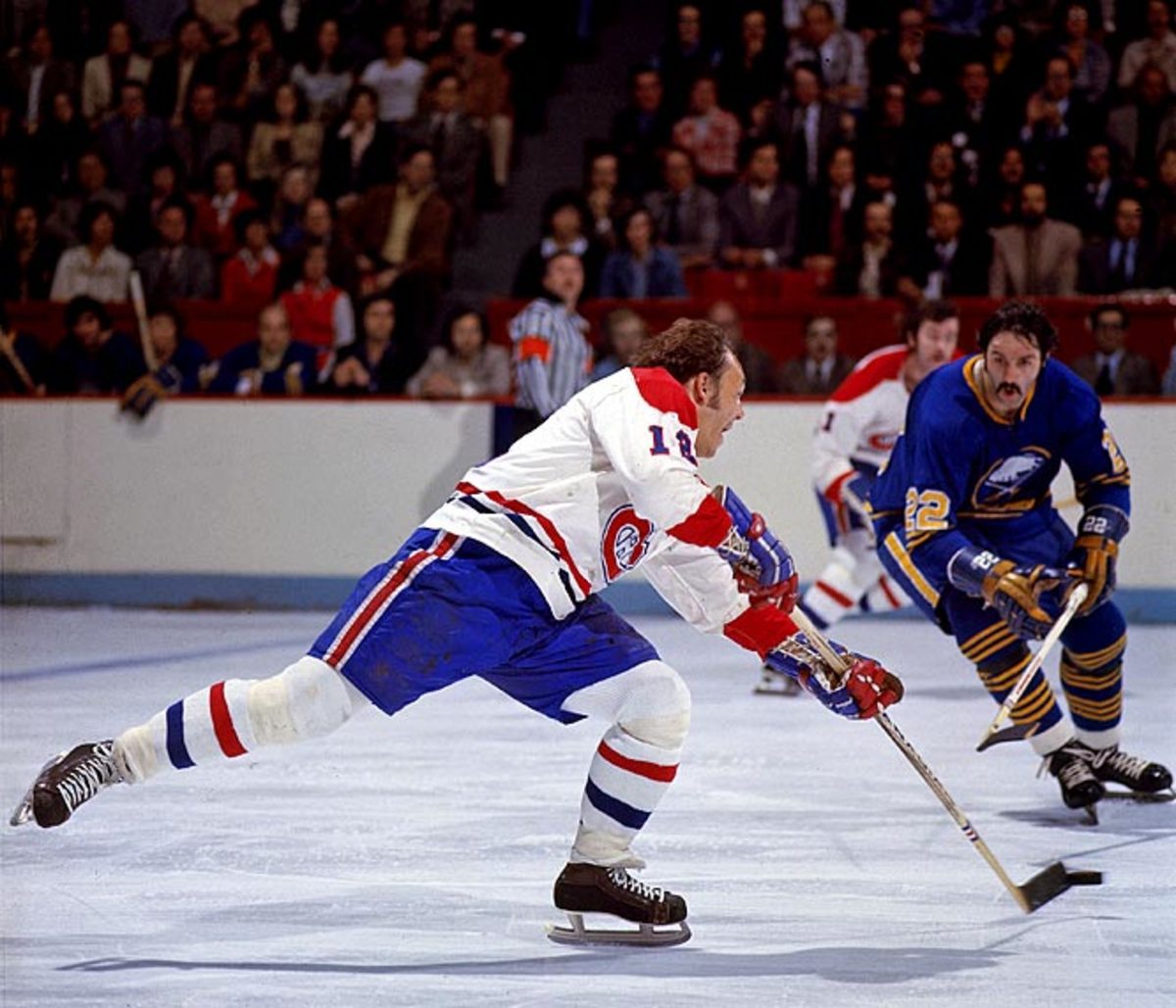
The small but blazing fast Cournoyer has said his nickname stuck after an SI writer referred to him in print as the "Montreal Roadrunner." The right-winger, who had a love for fast cars, was a flashy, reliable goal-scorer who topped 20 for 12 straight seasons and won 10 Stanley Cups during his 15-year career (1964-78).
Ken "Wolfman" Morrow
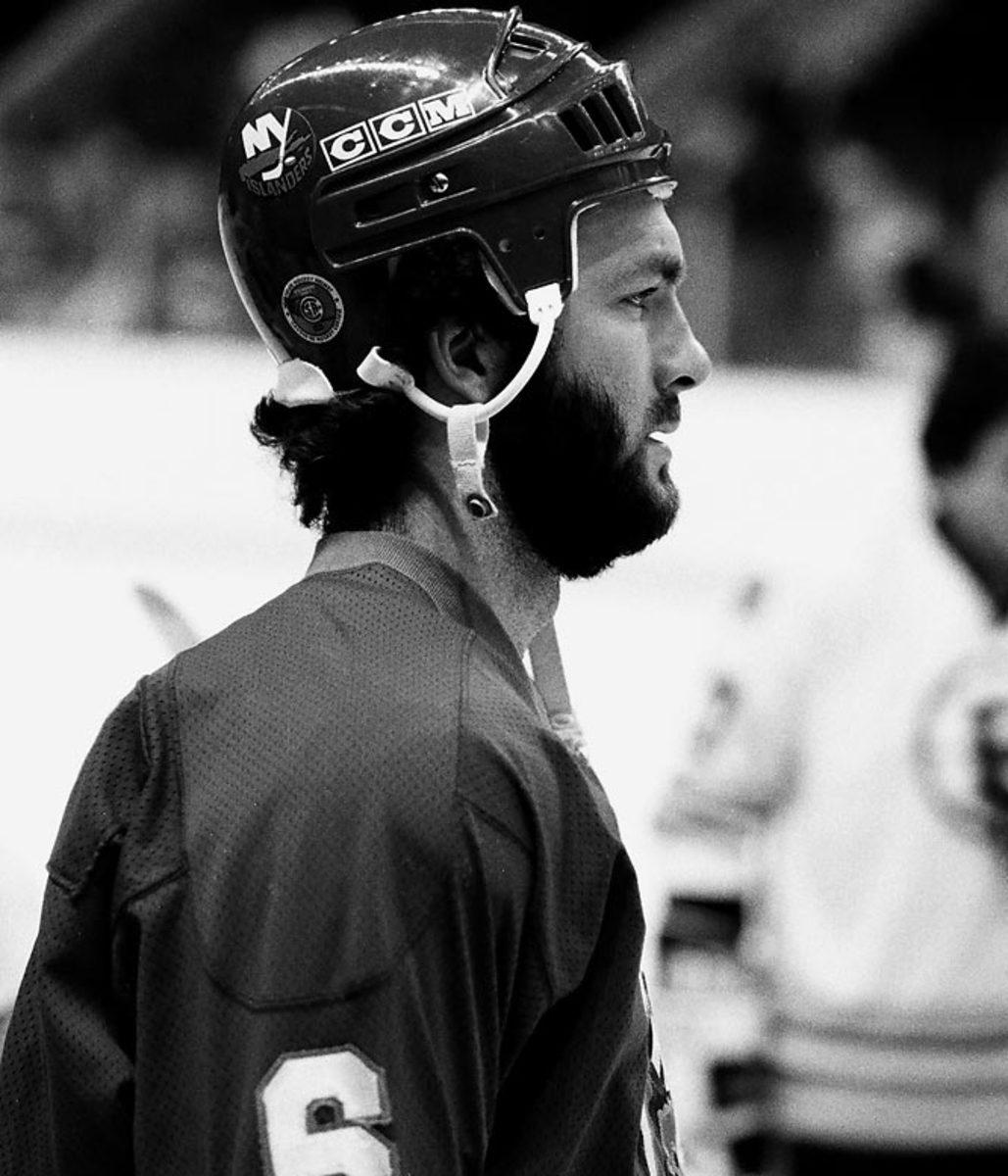
The lanky defenseman who joined the Islanders straight from the 1980 U.S. Olympic Team's miracle at Lake Placid earned his moniker for the bushy beard that made him resemble Lon Chaney, Jr.'s famous lupine menace. Not a particularly vicious or physical blueliner, Morrow's steadiness and skill made him a fixture on four Stanley Cup championship teams (1980-83).
Curtis "Cujo" Joseph
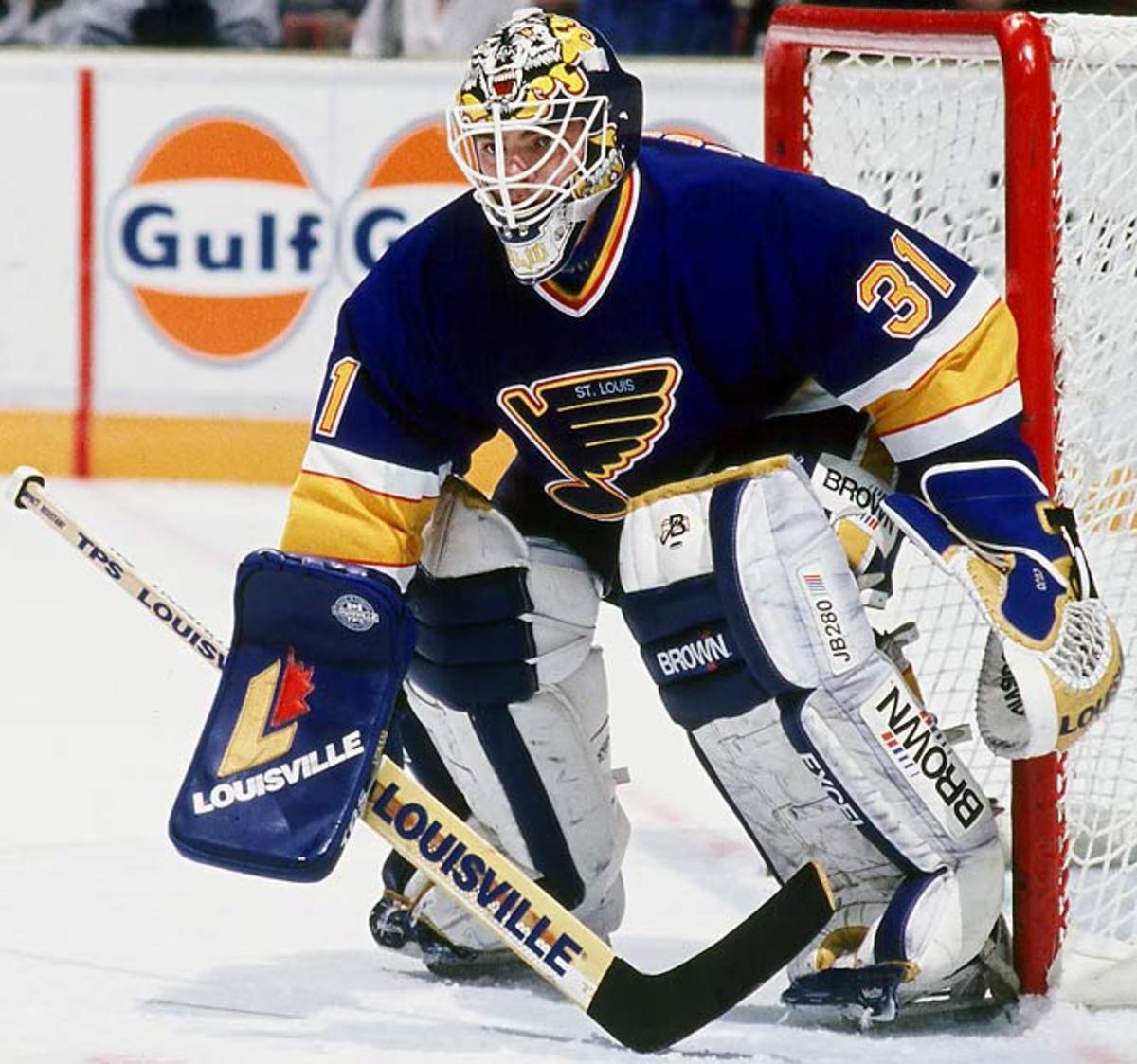
The nickname is a simple combination of the first two letters of the goalie's first name and the first two from his last name, but it took on more menacing overtones thanks to Stephen King's novel Cujo, about a deadly, rabid Saint Bernard. Hockey's Cujo has played for seven NHL teams since 1989.
Bernie "Boom Boom" Geoffrion
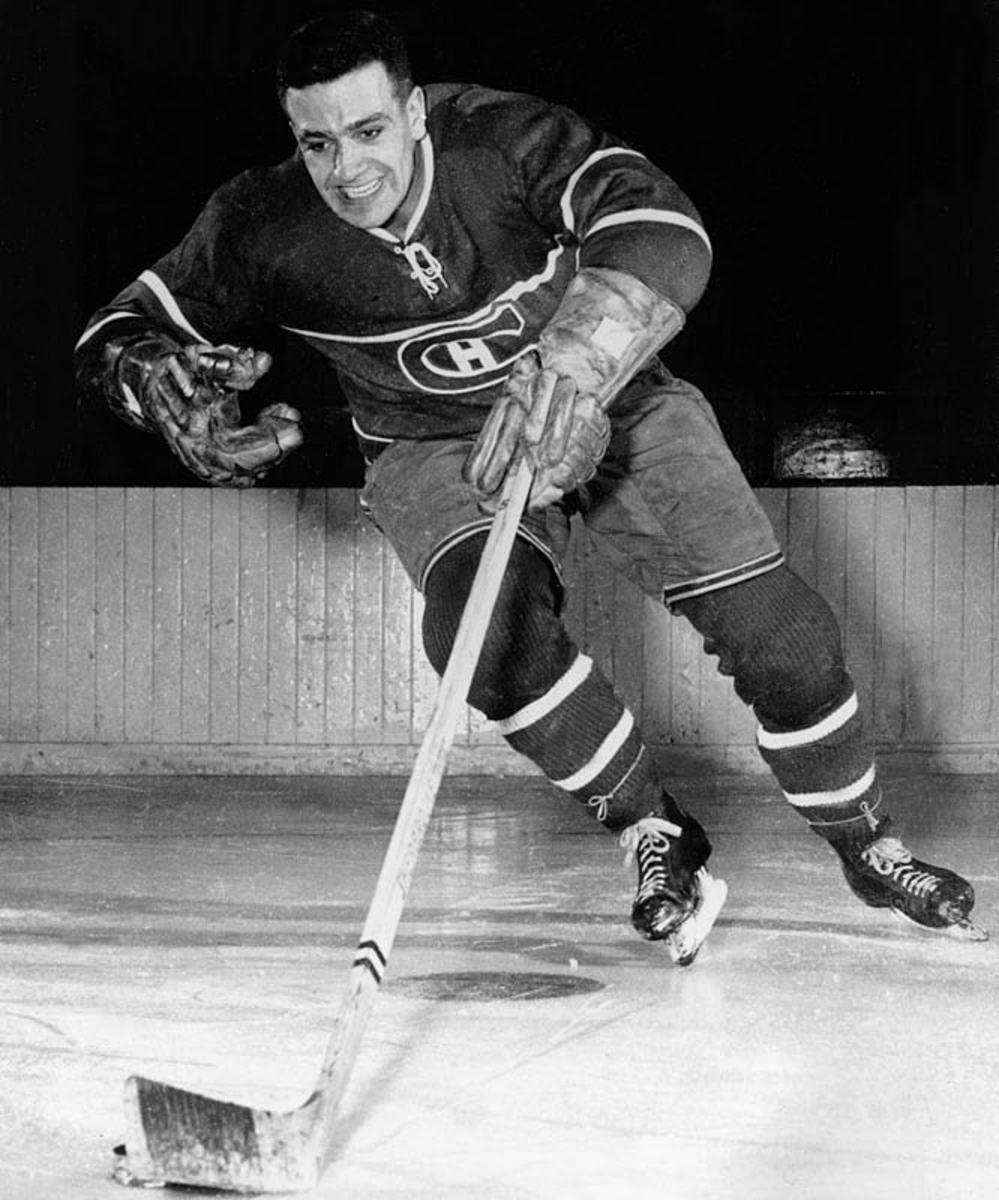
An offensive mainstay of the Canadiens' dynasty of the 1950s, Geoffrion was one of the pioneers of the slap shot. He was playing junior hockey for Laval when sportswriter Charlie Boire of the Montreal Star called him "Boom Boom" for the sound of Geoffrion's stick hitting the puck quickly followed by the powerful shot hitting the rink's boards.
"Battlin' Billy" Smith
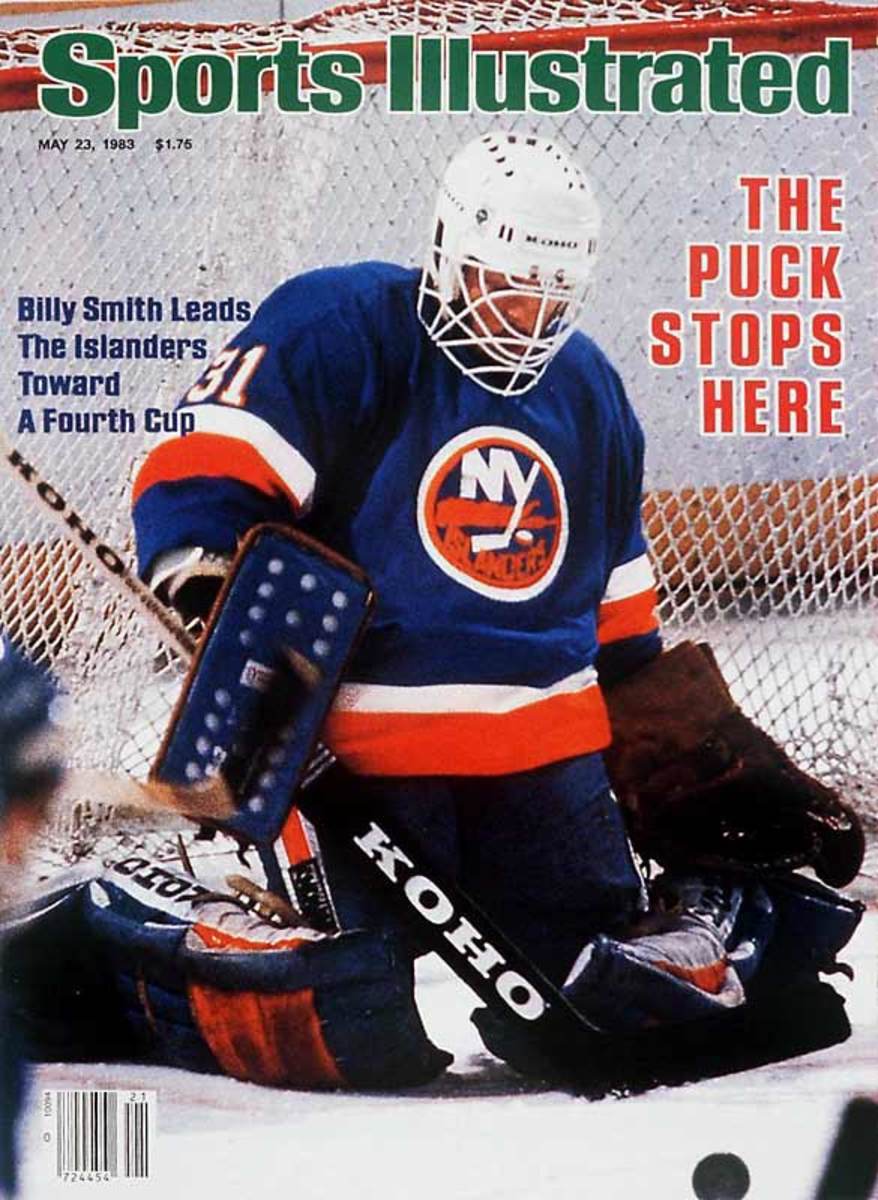
The was no more ornery or competitive netminder than the bulwark of the Islanders dynasty. Known to use his stick to hack the skates out from any opponent who dared venture near his crease, Smith was labeled "Public Enemy No. 1" by newspapers in Edmonton after he took down Wayne Gretzky in the 1983 Stanley Cup Final.
George "Punch" Imlach
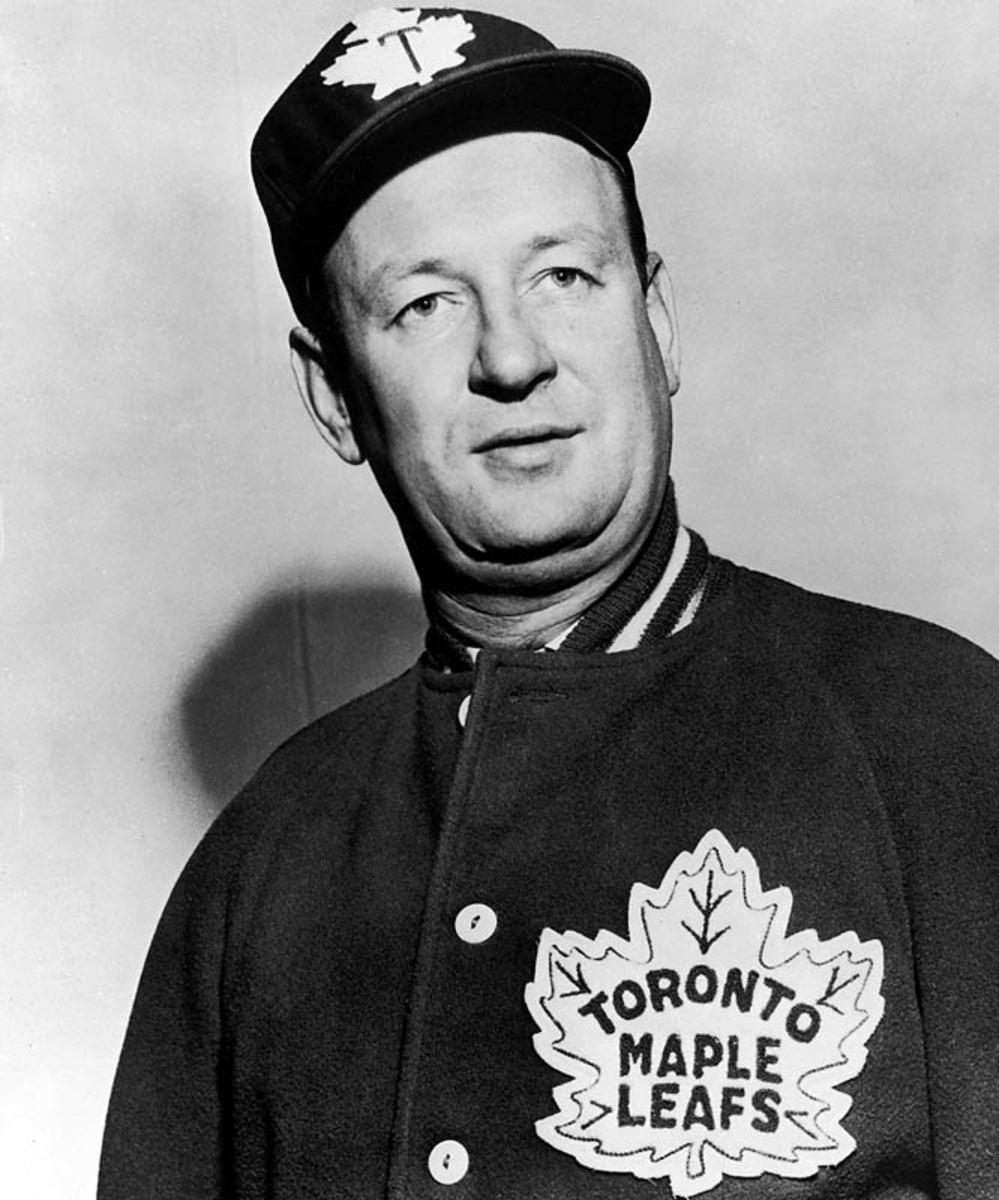
The Hall of Fame coach earned his nickname after he was accidentally knocked out by an elbow to the head during a senior league game in Canada. Upon waking, the dazed Imlach tried to punch his team's trainer, who was merely trying to help. Imlach never lived it down or played in the NHL, but he later guided the Maple Leafs to the playoffs 10 times in 11 seasons, winning the Stanley Cup in 1962, 1963, 1964 and 1967.
Hector "Toe" Blake
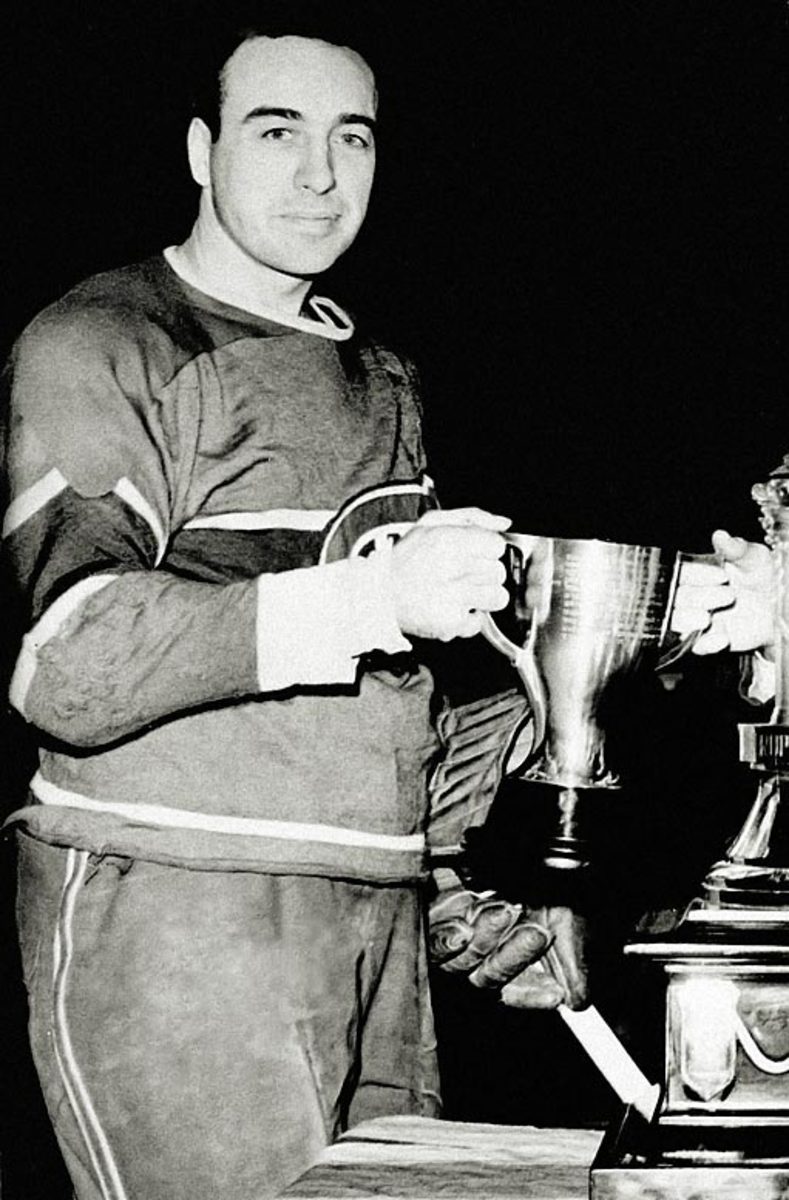
Nicknamed Toe as a kid because his little sister couldn't pronounce his name (she called him "Hectoe"), Blake was first known as "the Old Lamplighter" while skating on the Canadiens' Punch Line with Rocket Richard and Elmer Lach during the 1940s. Toe became the team's coach in 1955 and won eight Stanley Cups, including five in a row, in 13 years behind the bench.
Fred "The Fog" Shero
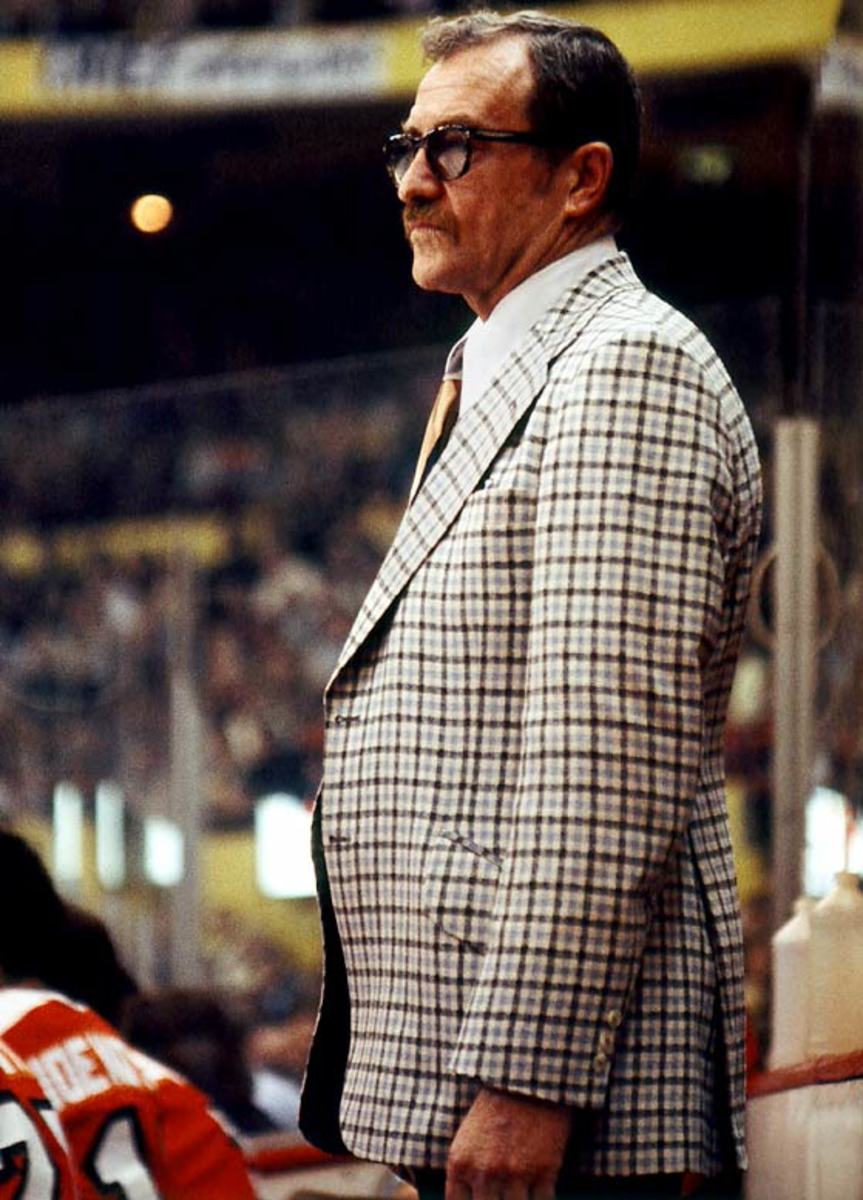
So called because he was so often lost in thought that he seemed to be in a fog, the coach of Philadelphia's infamous Broad Street Bullies guided them to successive Stanley Cups in 1974 and 75 and is also known for his famous directive to his players, "Take the shortest route to the puck-carrier and arrive in ill humor."
Duane "Dog" Sutter
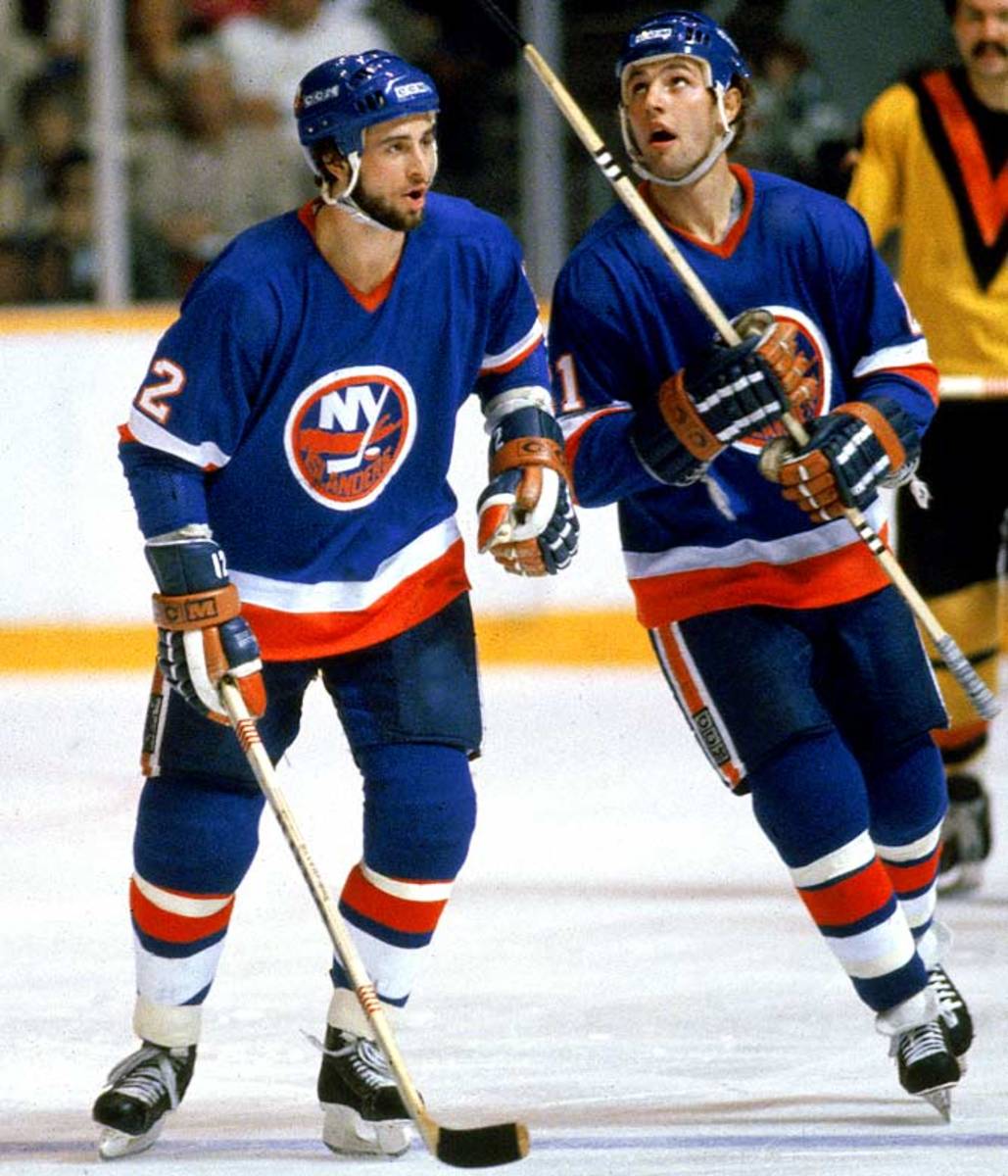
The scrappy winger (left) was given his nickname while with the Islanders from 1979-87, due to his constant yapping at opponents and on-ice officials.
Brent "Pup" Sutter
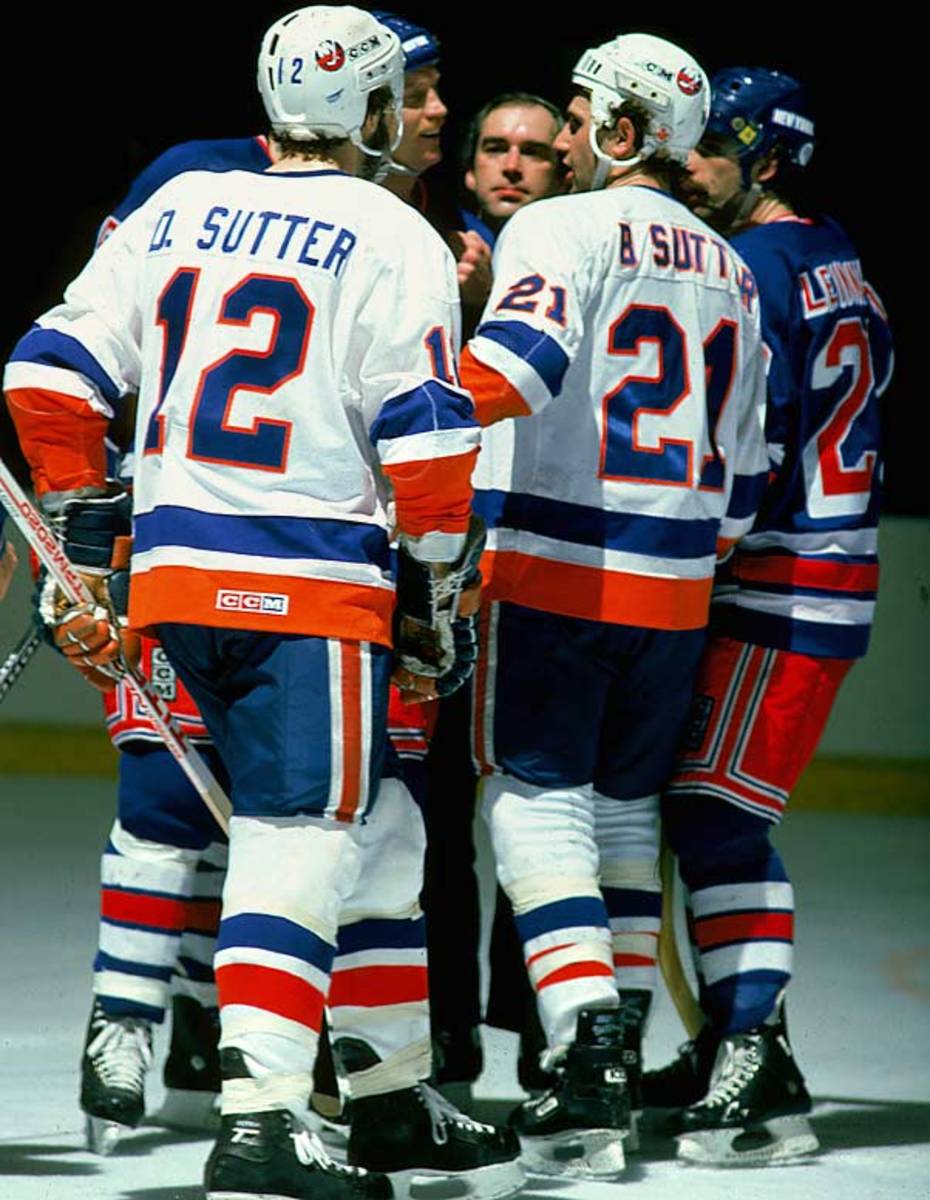
What else would you call the kid brother of a player nicknamed "Dog"? Brent and Duane played together for the Islanders from 1981-87.
Larry "Big Bird" Robinson
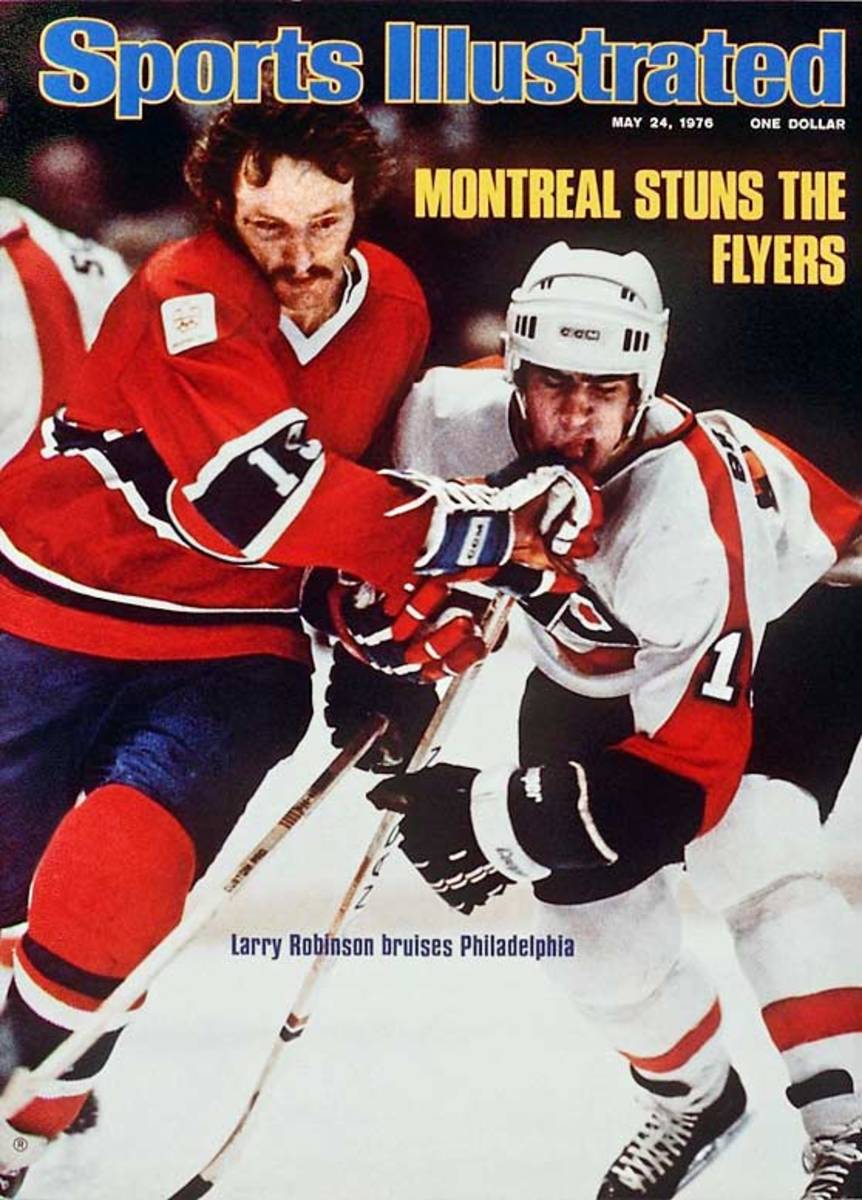
At 6-5 and 225 pounds, the Canadiens' blonde-haired blueliner reminded his teammates of the Sesame Street character after he was drafted in 1971. He loomed large in Montreal for 17 seasons, winning the Norris Trophy as the NHL's top defenseman twice as well as six Stanley Cups. The team retired the Hall of Famer's number 19 in 2007.
Dave "The Hammer" Schultz
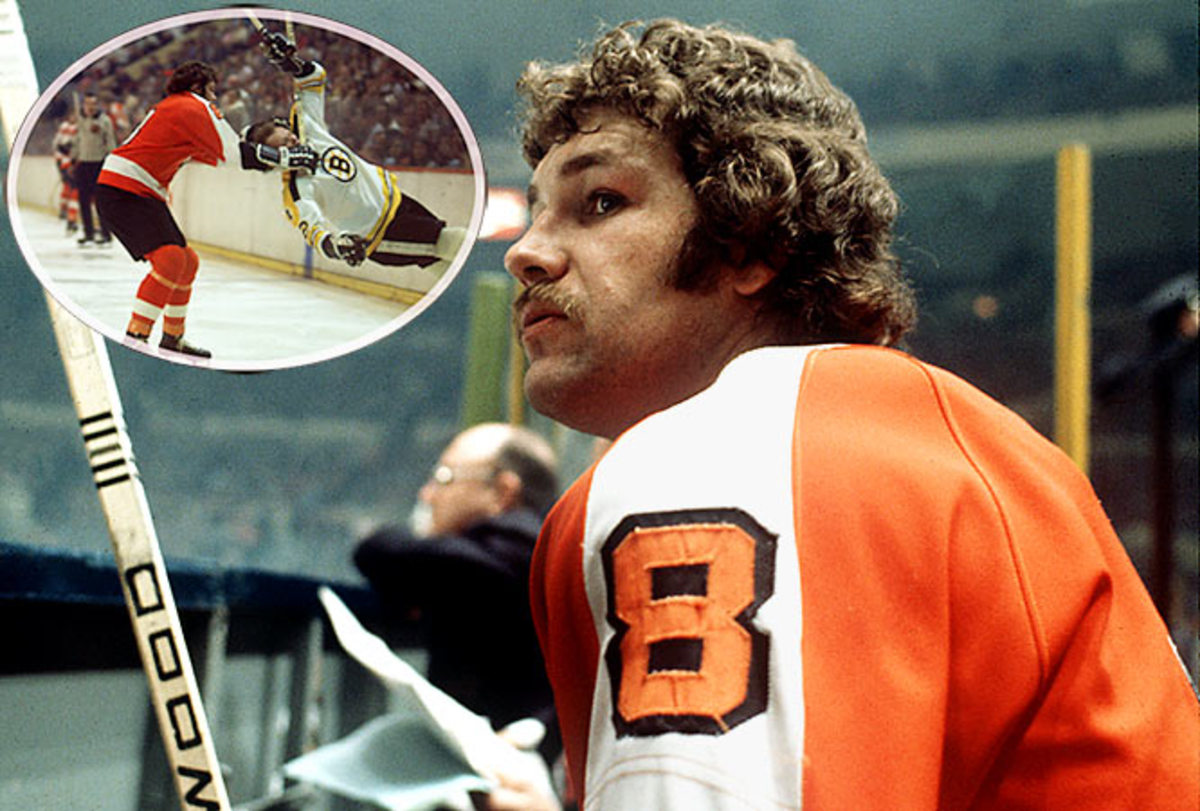
Nicknamed for his devastating roundhouse right, the punishing enforcer personified the Flyers' infamous Broad Street Bullies from 1972-76. Along with winning two Stanley Cups and whipping all comers, The Hammer is best known for his brutal beatdown of hapless Rangers defenseman Dale Rolfe in the 1974 playoffs.
Sidney "Sid The Kid" Crosby
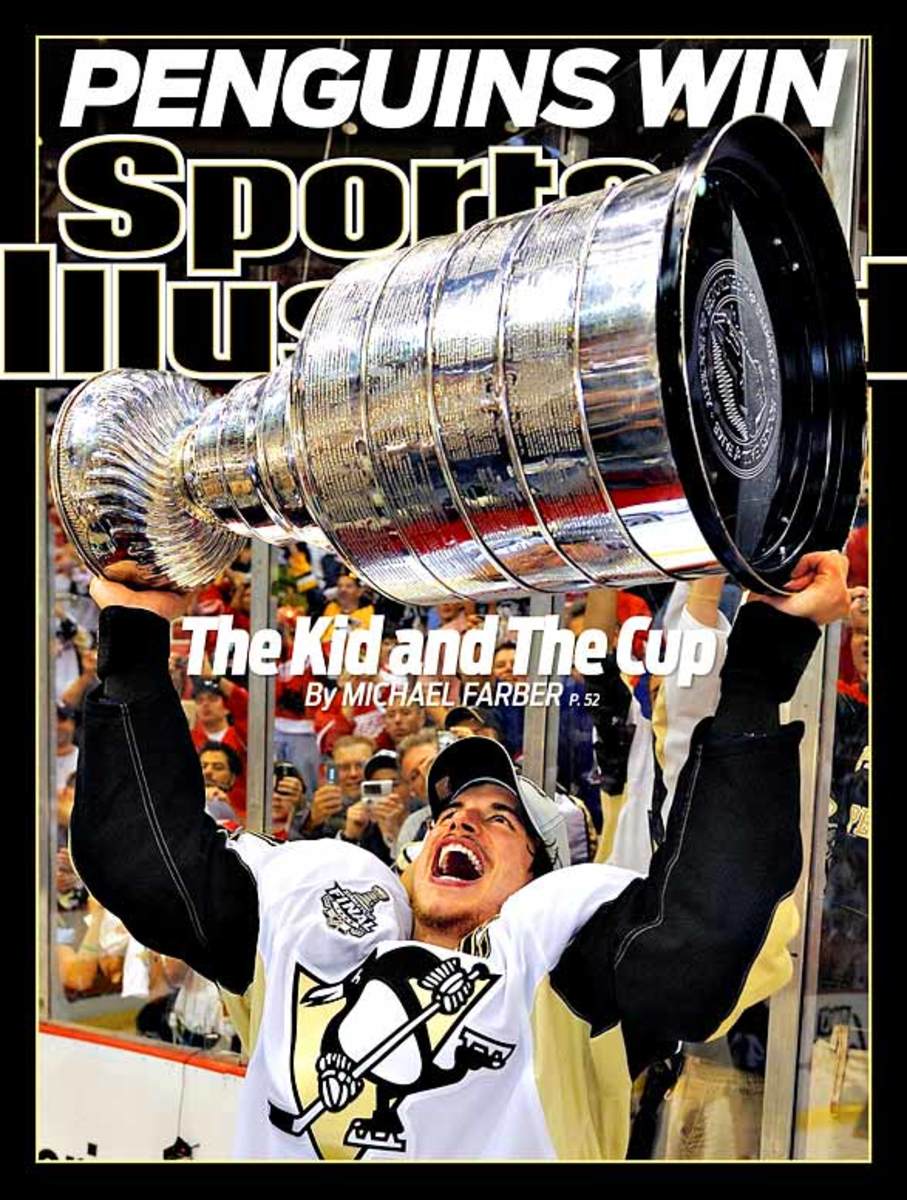
Since making his NHL debut in 2005 at the tender age of 18, the fuzzy-cheeked Crosby has become the youngest captain in NHL history (19 years 297 days) as well as the youngest (21) to lead his team to the Stanley Cup. He's also become the youngest player (18) to tally 100 points in a season and 200 in a career (19) as well as the youngest scoring champion (19) and person to ever receive the Order of Nova Scotia (22).
Alexander "The Great" Ovechkin
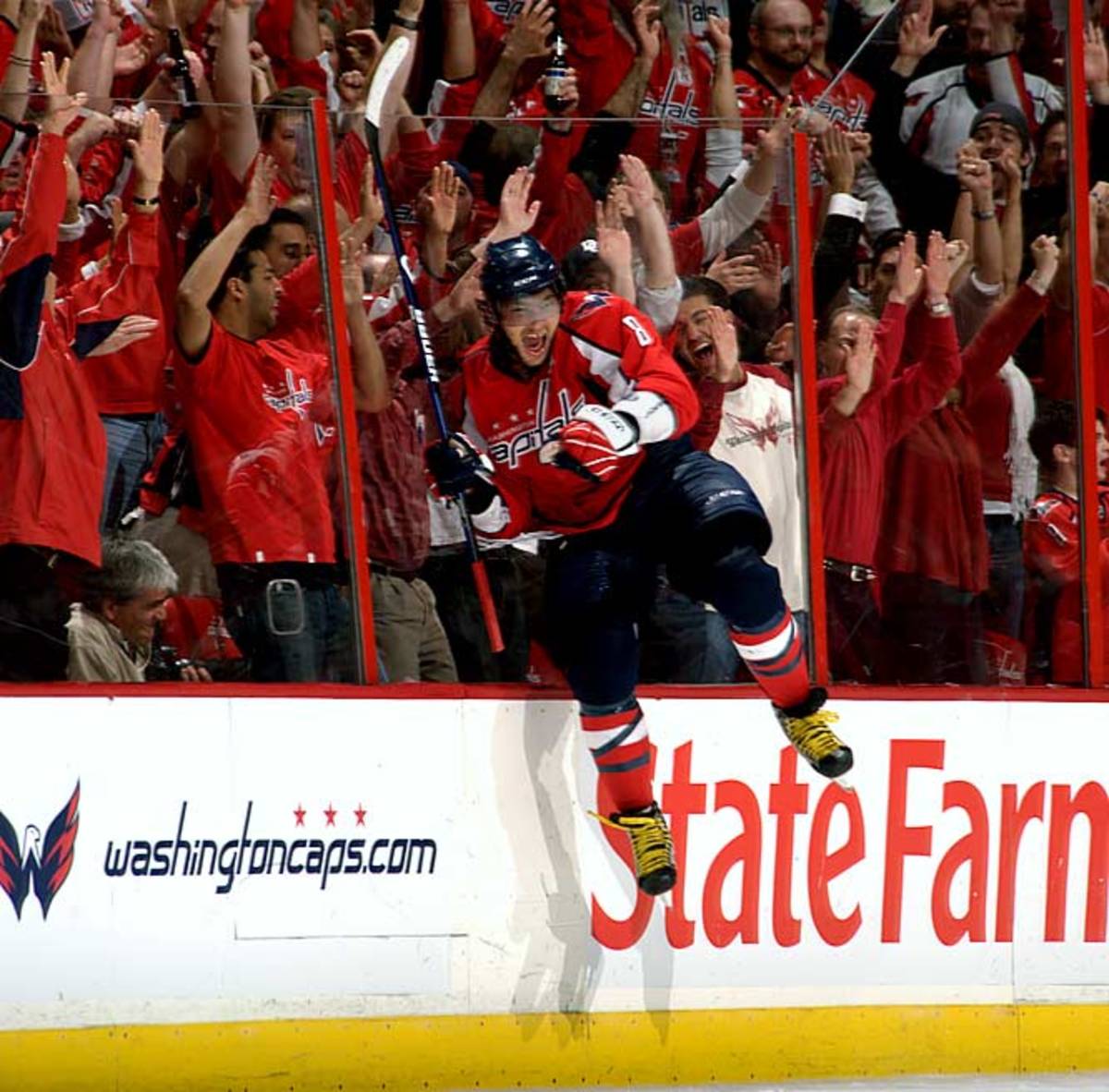
"The Great One" is sole property of Wayne Gretzky, but Ovechkin's moniker doesn't appear to be pure hyperbole. During his first four NHL seasons, the Washington Capitals sniper has become the game's most dynamic and electrifying goal-scorer, with 50 or more three times, while winning two successive Hart MVP trophies (2008, 2009).
"Saint Patrick" Roy
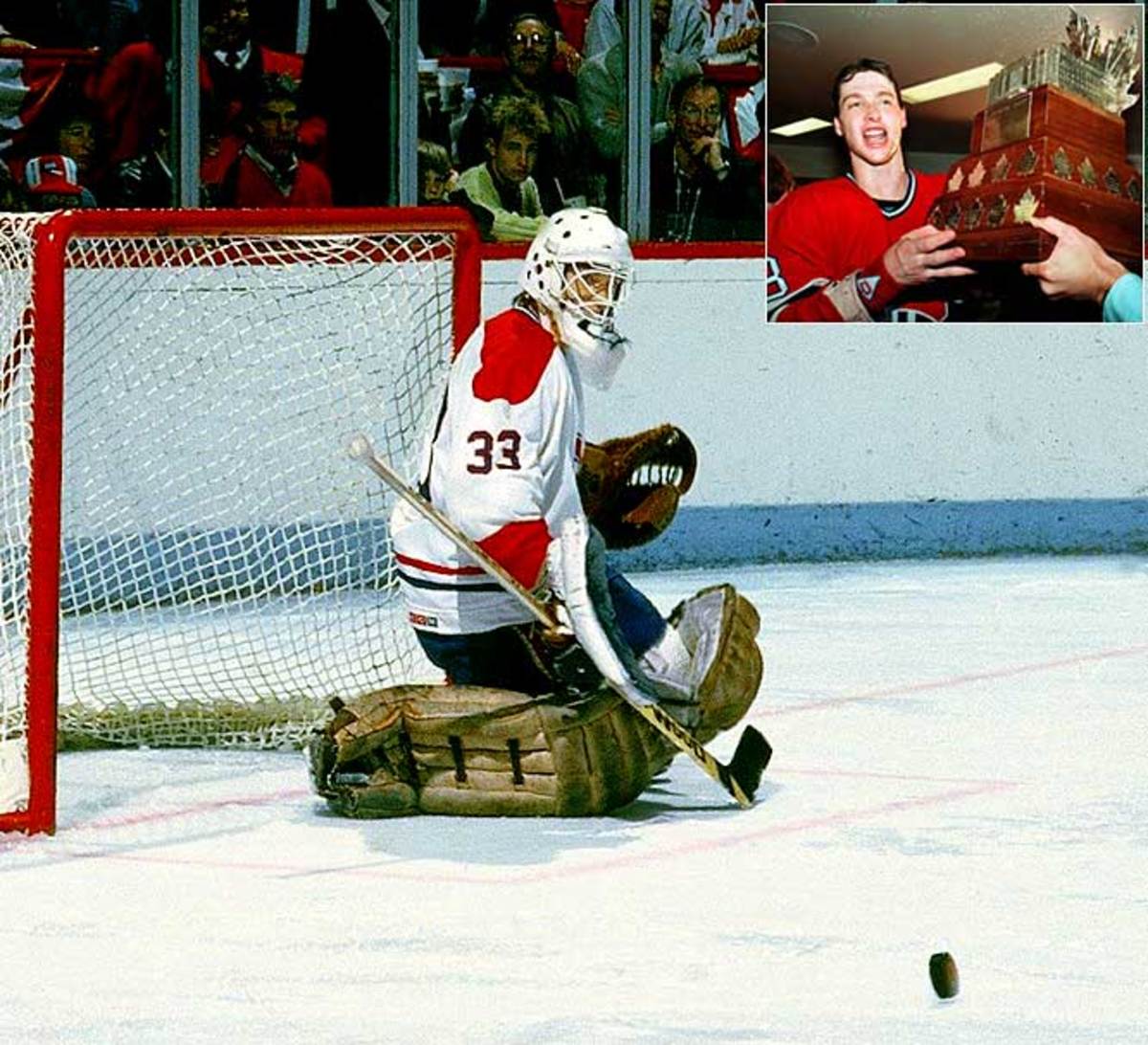
Reverent Canadiens fans bestowed sainthood upon the 20-year-old rookie goaltender after he led Montreal to the Stanley Cup in 1986, winning the Conn Smythe Trophy (playoff MVP) in the process. Roy won another Cup in 1993 before a fiery falling-out with coach Mario Tremblay led to his trade to Colorado. Saint Patrick was welcomed back to Montreal last November to have his number retired. Send comments to siwriters@simail.com.
